Charlotte NEWS JEWISH
Shevat-Adar

Shevat-Adar
In the aftermath of the terrifying hostage crisis in Texas and amidst a surge in the Omicron variant that has organizations scrambling yet again, this year’s Jewish Federation of Greater Charlotte’s Main Event was more powerful than ever. Even with a smaller in-person crowd than past years because of COVID restrictions and with others joining virtually, there was a heightened, palpable sense of community.
Main event co-chair, Ana Bonnheim articulated what was on everyone’s mind when she said, “It’s a challenging time for all of us. But as Jews, we are used to making it through tough times. The sense of cohesion in the Charlotte Jewish community has never been stronger.”
This year’s Main Event kicked off a milestone campaign with a goal of $5 million — funds that are necessary to support more than 70 unique agencies, pro-

















grams, and initiatives.
As past chairs of allocations, Main Event co-chairs Ana Bonnheim and Lindsay Muns shared their perspectives of seeing firsthand the impact that Federation dollars can make, dollars made possible by donor gifts as a as an investment in our Jewish community.
During Ana and Lindsay’s remarks, leaders from four of the beneficiary agencies shared the ways in which Federation allocations directly affect the work they do: Brook Amo, executive director of Charlotte Jewish Preschool; Jen Rosen, chief advancement officer of Moishe House, Bentzion Groner, ZABS Place; and Rabbi Judy Schindler, Sklut professor of Jewish studies and director of the Stan Greenspon Holocaust and Social Justice Education Center.
Rabbi Schindler summed up perfectly what being a Federation beneficiary agency means when she remarked, “A Federation allocation is Jewish community stamp of approval. A
Federation allocation is a Jewish community affirmation of support.”
The Main Event is as much about educating the community about the important role Federation plays as a community
builder and planner as it is about raising funds. Ana noted that Federation does much more than allocate funds; it also provides vital programming and resources to address some of our community’s greatest challenges, highlighting its role connecting and supporting Jews locally and globally.
The guest speaker for this year’s Main Event was businesswoman, philanthropist, and filmmaker Nancy Spielberg. Nancy shared stories of growing up Jewish and the profound influence her Jewish community had in shaping her identity, and eventually her interest in telling stories of Jewish importance through her films and documentaries. Nancy shared trailers for
four of her films, each more interesting than the last
As the evening wound to a close, Ana summarized the purpose of the campaign perfectly when she said, “Federation is truly the engine behind all of what makes our lives as Jews in Charlotte so enriching. At its core, the Federation’s Annual Campaign is about Jewish peoplehood, Jewish continuity, and ensuring a thriving Jewish future. It’s about identity, belonging, and connections. In a word — it’s about community.”
There are three ways to make your pledge: 1) Go online at www.jewishcharlotte.org 2) Text (704) 327-0354, or 3) Call (704) 944-6757.
Jewish Federation of Greater Charlotte’s Center for Jewish Education (CJE) is proud to present Charlotte’s inaugural Jewish Book Festival on March 22-27, 2022. A literary festival celebrating the written word with Jewish themes and authors, this event provides a unique opportunity to intimately engage with best-selling authors, learning about the people behind the books and the inspiration behind their work. The slate of events reflects our community’s diverse interests, with authors representing a range of genres and content, from adult discussions to teen and family programming. Authors include
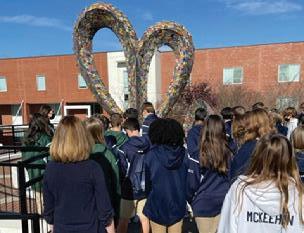
reader favorites such as Kristin Harmel (“The Book of Lost Names,” “The Forest of Vanishing Stars”), Lisa Scottoline (“Eternal”), and many others.
The kickoff event on March 22 at 7 p.m. will be an interactive Zoom conversation with Brad Aronson, author of the nonfiction best seller, “HumanKind.” Deemed “the most uplifting book of the year” by Forbes magazine, “HumanKind” is the festival’s timely pick to lift all of our spirits and provide a refuge from the negativity that surrounds
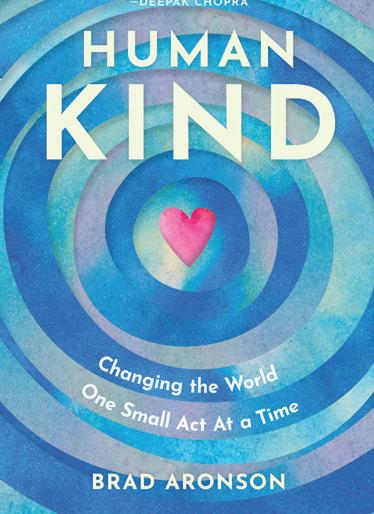

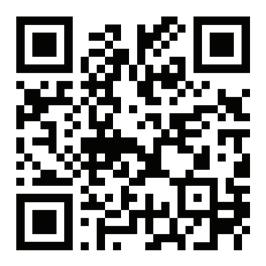

We’re a month into 2022, and it seems the bad news just keeps coming. New variants, new floods, new horrific acts of violence. A friend said the other day, “I’ve lost hope in humanity. Our country is a mess, and the world has become such an awful place to live in.” And I confess, a cursory scroll of my news feed tempts me to agree with her. I also admit that I scroll far more often than I used to.
But is it true? Is the world really the scary, ugly place my
e Charlotte
Shabbat
Candle Lighting Times
February 4 — 5:37 p.m.
February 11 — 5:44 p.m.
February 18 — 5:50 p.m.
February 25 — 5:57 p.m.
Shira Firestone, Editor
5007 Providence Road, Suite 112
Charlotte, NC 28226 (704) 944-6765
www.charlottejewishnews.org
charlottejewishnews@ shalomcharlotte.org
The CJN does not assume responsibility for the quality of kasruth of any product or service advertised. Publishing of a paid political advertisement does not constitute an endorsement of any candidate, political party or position by this newspaper, the Federation, or any of its employees.
phone shows me each morning (and all day for those of us habitual scrollers)? I don’t think it is. In no way do I want to minimize the seriousness of the concerns of the state of the world today.
I am, though, confident that the select offerings on my feed do not reflect the greater reality.
I can trace my uncomfortable attachment to my phone back to early 2020 when I, like the rest of the world, was incessantly following news of an unfolding pandemic. That was when a great many of us became hooked on “doomscrolling,” described by Rebecca Jennings, a contributing writer to Vox as “the masochistic practice of compulsively scouring the internet in search of evermore terrible information.” Unfortunately, thanks to complicated social media algorithms, that particular behavior of seeking out stories that detail the very worst the world has to offer is what ensures that more terrible news will be served to us on a platter.
Not too long ago in my scrolling haze, I noticed only two types of stories were appearing in my news feed — COVID and true crime. True crime? Apparently
us. You’ll laugh, you’ll cry, and you’ll be reminded of what really matters.
Other highlights include an in-person event for teens and their parents on March 23 at 7:30 p.m. with Liza Wiemer, author of the young adult novel, “The Assignment.” Based on a real-life situation, the book is a powerful statement against bigotry, discrimination, and antisemitism.
Kristin Harmel, best-selling author of “The Book of Lost Names” and “The Winemaker’s Wife,” will join us virtually on March 24 at 7 p.m. to discuss her newest novel, “The Forest of Vanishing Stars.” Based partially on incredible true stories of survival against staggering odds, “The Forest of Vanishing Stars” is a heart-wrenching and suspenseful novel from the internationally best-selling author whose writing has been hailed as “immersive and evocative.”
(Publishers Weekly)
On the afternoon of March 26, families with young children are invited to join the festival for a PJ Library program featuring handson crafts and a conversation with Todd Parr, best-selling author and illustrator of more than 50 books for children, including “The Thankful Book,” “The Shalom Book,” and “It’s Okay to be Different,” as well as “The Kindness Book.”
Max Gross, author of the “The Lost Shtetl,” closes out the spring festival on March 27 at 7 p.m. Winner of a 2020 Jewish Book Award from the Jewish Book
last year I’d taken a bit too much interest in a couple of high-profile cases. Thanks to Facebook’s ever-changing algorithms, those stories slowly — insidiously — crept to the top of my feed while I hardly noticed, until they were the only stories offered. So I clicked — and ensured they would be all I would ever see.
Facebook’s model is to determine what you will engage with to keep you scrolling. The more you scroll, the more ads you see. In 2017, Facebook added additional options for reacting to posts beyond the traditional “like.” Emojis that conveyed emotions such as “wow,” “love,” “ha ha,” “sad,” and “angry” became part of the algorithm. Instead of being weighted equally though, an “angry” reaction was weighted as five times more valuable than other reactions! Facebook has concluded that content that generates the strongest reaction is far more likely to keep us scrolling and “engaged” longer. Consequently, we receive a steadily curated feed of more highly emotional, divisive content.
In their 2021 article in the Washington Post, Jeremy Merill
and Will Oremus write, “[Facebook’s] data scientists confirmed in 2019 that posts that sparked angry reaction emoji were disproportionately likely to include misinformation, toxicity and low-quality news. That means Facebook for three years systematically amped up some of the worst of its platform, making it more prominent in users’ feeds and spreading it to a much wider audience.”
This development’s negative influence on our society as a whole is undeniable. But on a more personal level, it is part of what leads us to conclude, just as my friend has, that the world is a terrible place. Of a constant exposure to negative news Carolyn Gregoire says, “It can lead to a pessimism and world-weariness that leads us to perceive the state of the world in an overly negative light — leading us to ignore and overshadow the many things that are working. (What Constant Exposure Is Doing to our Mental Health, Carolyn Gregoire)
In Jewish Family Services’ article on page nine, “Technology and Mental Health,” Executive Director Howard Olshansky out-
lines some concerns about the relationship between both physical and mental health and the overuse of technology.
In our February issue (which can be easily accessed in the archives at www.charlottejewishnews.org), I wrote about doomscrolling and quoted Sam Harris, who says, “There is a war being fought for our attention, and most of us are losing.” I believe with awareness and conscious intent, we can turn that tide. It begins by understanding the ways in which the news is selecting us, not the other way around, and engaging more consciously with the technology we are unlikely to give up. If you’re in search of good news, I encourage you to follow The Charlotte Jewish News on Facebook. You can look forward to starting your week with a good news story every Monday morning.
I still believe there is more good than bad in the world; we just have to know where — and how — to look for it.
Council and the best Jewish fiction award from the Association of Jewish Libraries, this debut novel tells the story of a tiny Jewish shtetl in the Polish forest that is so secluded that no one knows it exists. It asks the question, “What if there were a town that history missed?”
An encore event is scheduled for June 2 at 7 p.m. and will feature Lisa Scottoline, the best-selling and Edgar Award-winning author of 33 novels. Lisa Scottoline will discuss her 2021 best-seller “Eternal,” a saga of loyalty and loss, family and food, love and hate, set in Rome during the 20 years of Mussolini’s rise and fall. “Make a plate of fettuccine, pour a glass of red wine, and settle in with this captivating tale.” (Library Journal)
The festival will feature a mix of in-person and live-streamed author appearances, with participants having the option to join virtually from home or attend limited capacity “viewing party” events at Shalom Park.
Over the past year, when we were unable to meet in person, CJE found a way through, connecting online. CJE hosted lively conversations with authors, established and emerging, and was delighted to bring our programs to new audiences across the greater Charlotte area.
Successful as these programs have been, however, nothing beats live events. One of the lessons the pandemic has taught us is how much we need the com-
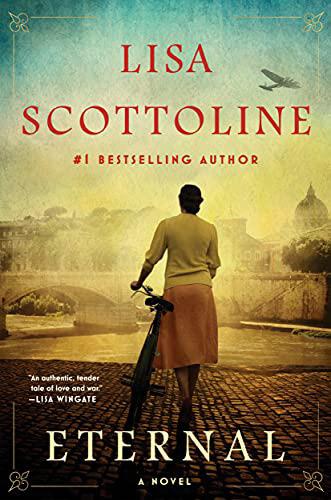
pany of one another. We have a universal need to connect. It is through that connection that we experience ideas forming, arguments that take an unexpected turn, and sparks that occasionally fly. The magic lives on even after the event ends, as we leave the room to compare notes, debate and relive our favorite moments with friends.
The staff at CJE is working hard to welcome people safely to enjoy the festival in person. That said, we appreciate that not everyone feels ready to return to a live venue. We are pleased to be able to offer both in-person and virtual experiences for all events, so ticket holders can attend based on their comfort level, while still
connecting with each other and with the books and their authors.
The other challenge in planning this festival was to offer a diverse, broad lineup of authors and topics during the weeklong festival. We believe this year’s festival does this with several great novelists, teen night, family program featuring Todd Parr, and much more. In other words, it has something for everyone!
The festival strives to reflect and showcase recent literature and, in the process, expose our city and community to meaningful and captivating conversations about the written word in every shape and form. Most of the festival’s authors and their books were selected from more than 300 participants at a three-day Jewish Book Council Network showcase held virtually earlier in 2021. The showcase attracts roughly 120 member organizations across North America, including JCCs, synagogues, Hillels, Jewish Federations, and cultural centers.
Whether you choose to join us in person or on Zoom, we hope you enjoy the many programs we have planned to keep you entertained, educated, and informed! Be sure to check out the website www.jewishcharlotte.org for all the details on the festival and to buy your tickets!

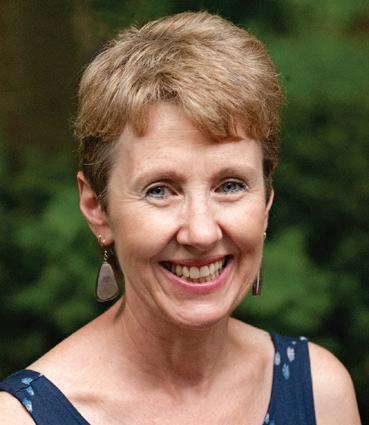 By Debby Block
By Debby Block
February is Jewish Disability Awareness, Acceptance, and Inclusion Month (JDAIM). It is essential that every parent and grandparent help children empathize with others who have abilities that are different from their own. Fortunately, books provide a perfect jumping-off point for a discussion about persons with disabilities, and there are currently many quality children’s books on this topic.
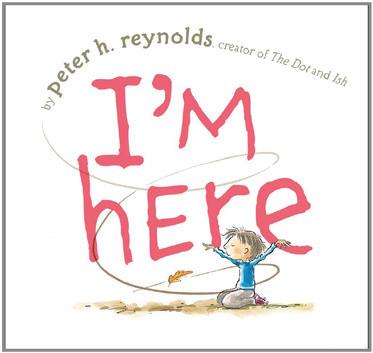
Peter H. Reynolds is one of my favorite authors because his books promote individuality, including his popular children’s book “The Dot,” “Be You,” and “Ish.” For JDAIM, I highly recommend “I’m Here,” a charming picture book about a dreamy loner boy playing with a paper airplane. One little girl finally makes a connection and says,
“I’m here.” The book clearly illustrates that it only takes one person to make a difference. Peter Reynolds wrote this book to help everyone “reach out, embrace, and appreciate children on the autism spectrum, as well as anyone who differs from us.”
Recommended for ages 2-6.
“Zero” by Kathryn Otoshi, recently recommended to me by Bentzion Groner of the Friendship Circle, is a simple rhyming book that delivers a powerful message about what it feels like to be different and inconsequential. In the book, the number Zero looks different from all the other numbers and believes that she does not count, and, of course, a zero, by itself, has no value! Zero realizes that she is not empty inside but rather “open,” and Zero learns that combined with other numbers, they can help each other count a great deal. The message in this best-loved picture book is for all ages but is particularly geared for children ages 3-7.
Leo is different from all the other animals. Little tiger Leo does not write, speak, or even draw. “Leo the Late Bloomer” by Robert Kraus tells us in simple, yet comprehensible language that not everyone develops the same way and that is perfectly OK. The positive message accompanied by the bold illustrations by Jose Aruego makes this a classic children’s tale. Recommended for ages 2-5.
“Beep Beep Bubbie” by Canadian writer and filmmaker Bonnie Sherr Klein tells the story of a Bubbie (grandmother) who recently started using a motorized scooter to get around. Granddaughter Kate is upset and thinks that Bubbie will no longer be able to share the same fun activities with her anymore. Happily, Kate’s fears turn out to be unfounded! Recommended for ages 3-6.
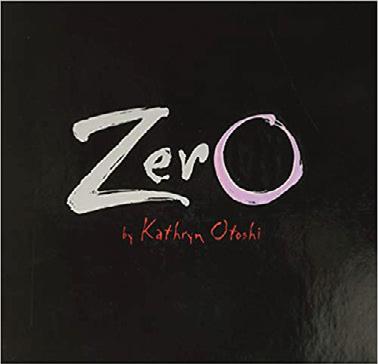
“Itzhak: A Boy Who Loved the Violin” by Tracy Newman is a picture book biography of violin virtuoso Itzhak Perlman. A PJ Library selection, this award-winning book tells the story of Itzhak Perlman contracting polio as a boy and having to wear leg braces for the rest of his life. The book beautifully tells how Itzhak followed and accomplished his dreams of becoming a musician despite his disability. Recommended for ages 5-8.
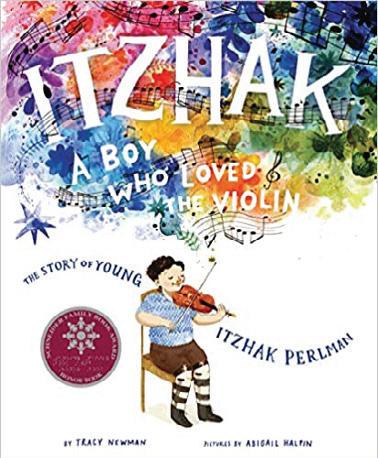
“The Girl Who Thought in Pictures: The Story of Dr. Temple Grandin” is the first children’s book written by Julia Finley Mosca. Written in rhyming text, this charming book tells the story of Temple Grandin, a young girl with autism who eventually becomes one of the most important voices in modern science. Temple’s strength



as a visual thinker and innate connection to animals help her invent groundbreaking improvements for farms worldwide. I love the text and the accessible illustrations by Daniel Rieley. Recommended for ages 5-10.
Last, but certainly not least of my best-loved books about people with disabilities, is a new book by renowned children’s author Maryann Cocca-Leffler and her daughter Janine called, “We Want to Go to School!: The Fight for Disability Rights.” This picture book tells the true story of how seven children and their families fought to have the laws of the United States changed so that all children with disabilities could receive a free public education. Not only does this children’s book teach about inclusion, but also it teaches
about advocating and fighting to change the law. I was inspired and moved by this book, and I think you will be too! Recommended for children ages 5-10.
Miss Debby’s best-loved books and many other wonderful books can be found at the Levine-Sklut Judaic Library. Books may be reserved by calling (704) 944-6783 or by emailing library@jewishcharlotte.org. You can pick up your requested item(s) by visiting us in the library. Hours are Monday-Thursday 9-4, Friday and Sunday 9-1, Saturday closed.
Curbside pickup is also available upon request.





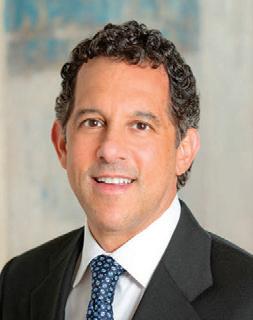

On December 2, 2021, for the first time in 21 months, the Levine Jewish Community Center (LJCC) Butterfly Project hosted an in-person workshop for 120 masked seventh-grade students from Weddington Middle School. We were thrilled to once again be able to welcome a group of local students for a twoand-a-half-hour field trip, during which we use the lessons of the Holocaust to teach students how to identify and combat prejudice, stereotyping, and discrimination and to promote activism.
Our workshops include listening to a local Holocaust survivor speak followed by Q&A; an educational activity using the ADL’s “Pyramid of Hate” to demonstrate what can happen when individuals and governments fail to take a stand against injustice; a discussion to encourage thought about individuals’ names and identities; and a tour of the Margaret & Lou Schwartz Butterfly Garden Holocaust Memorial. Before leaving the workshop, each student paints a ceramic butterfly in memory of specific child killed in the Holocaust.
The Butterfly Project began in San Diego, California, by educator Jan Landau and artist Cheryl Rattner Price, with the goal of painting 1.5 million ceramic butterflies in memory of the 1.5 million children who died in the Holocaust. The LJCC expanded upon that idea by creating a full workshop. Since the inception of the project in 2008, more than 49,000 people have participated in a LJCC Butterfly Project workshop. The number of ceramic butterflies painted here represents approximately 17% of the worldwide total.
It is exciting to again have students from public, private, and charter schools in Mecklenburg and surrounding counties walking the hallways of Shalom Park between segments of the workshop, admiring the artwork on the walls and the pieces of art in display cases, engaging with staff and the many volunteers who help make the workshops happen, and sometimes marveling at the fact that a Jewish institution is no different from any other institution in many ways. We look forward to hosting another 3,000 students before the end of the 2021-22 school year.

The LJCC Butterfly Project was not immune to the effects of the COVID-19 pandemic. Our workshops came to an abrupt halt on March 13, 2020, when the LJCC, like so many other institutions, temporarily halted its operations. At that time, more than 1,500 students from 12 schools were scheduled to attend a workshop before the end of the school year.
Given the continuing rise in antisemitism, racial inequities, and other forms of discrimination, the lessons taught at the LJCC Butterfly Project seemed more relevant than ever. We decided to offer remote workshops, Zooming with students who were attending school virtually from home. Between March 13, 2020, and November 2021, more than 5,400 students participated in our online workshops, joined, in many instances, by parents and other family members who overheard the material at home and were drawn in by the content.
In addition to now welcoming back students, we are pleased to welcome back our amazing and invaluable volunteers. The workshops could not happen without the help of four to six volunteers each session. Volunteering is easy and satisfying, and we truly could use more help!
With only one dedicated staff member, the help of volunteers is crucial. There are many volunteer opportunities with each workshop, including setting up for the painting of the butterflies, facilitating small group activities, helping students read aloud the name of the child the student
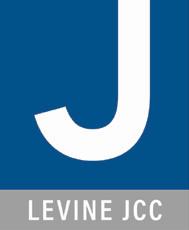
is memorializing, and leading one of the educational discussions or the tour of the memorial.
Long-time volunteer Fran Schuler has said, “Every week is inspiring to me, just to listen to the questions the children ask and also to listen to the answers they give…” Lay committee co-chair, Judy August, one of the original volunteers who recently resumed volunteering at workshops says, “The ability to schedule my volunteer time on specific dates rather than making a regular ongoing commitment has allowed me to volunteer even though I work — it’s really wonderful!”
If you are interested in volunteering for the LJCC Butterfly Project, please contact Emily Russell, Butterfly Project administrator, at butterflyproject@ charlottejcc.org. Our motto: “Our volunteers are not paid … not because they are worthless, but because they are priceless.”
The goal of the Levine JCC’s Butterfly Project is to teach each participant to remember the past, to act responsibly in the present, and to create a more peaceful future.

In 2021, Jewish Education Loan Fund (JELF) assisted 398 students with $1,845,851 in interest-free loans. Of this total, 17 Jewish students from Charlotte were provided $73,126 toward their educational journey.
Applications for JELF’s interest-free loans for higher education (college, graduate school, and vocational programs) for the 2022-23 academic year will open to Jewish students beginning Jan. 3 and through April 30, 2022.
JELF provides interest-free last-dollar loans for higher education to Jewish students in need, bridging the gap between a student’s total financial resources and the cost of attending school. Since 1961, JELF has provided more than $14 million to more than 5,000 students from JELF’s five-state region of Florida, Georgia, North Carolina, South Carolina, and Virginia (excluding metro DC). JELF is proud to boast a 99% repayment rate and strongly believes that money should not stand between a student and the education needed to excel in life. JELF, in partnership with the Jewish Federation of Greater Charlotte and Jewish Family Services, helps Jewish students reach their academic goals.
To qualify, an applicant must be:
• A permanent resident of FL, GA, SC, NC, and VA (excluding metro DC) but can attend any U.S.-accredited school
• Enrolled full time in a program leading to a degree or certificate
• In good academic standing
• A U.S. citizen or have lawful immigration status
• Able to provide a designated cosigner
• Planning to accept federal subsidized and unsubsidized loans (2021 FAFSA application required)
JELF loans are designed to help cover costs associated with the educational and living expenses that other financial aid often does not cover, such as travel, rent, food, and books.
JELF’s 0% interest loans help save borrowers thousands of dollars in high interest-bearing debt each year. With 45 million Americans in some form of outstanding interest-bearing student loan debt, this savings is a significant benefit to the Jewish students JELF serves annually. The strength of the longstanding “free loan” model is based on

funds lent to those in need, and then paid back to serve the next student, and so on. As funds are recycled indefinitely, the organization’s sustainability allows it to always help future students in need. In addition, hundreds of former JELF recipients continue donating to JELF each year after completing their repayment.
“This is the only type of organization I know of that when I write a check, I know exactly where it’s going, and it keeps going. My dollars never die,” says Stan Lowenstein, former board chair and longtime JELF volunteer.
Many organizations provide interest-free loans, but JELF is distinct because it is the only Jewish organization in the U.S. focused solely on higher education.
For more information about JELF, please visit jelf.org. For more information about JELF in Charlotte, contact Rachel Green at (704) 364-6594 or rachel. green@jfscharlotte.org
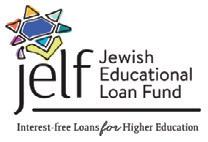



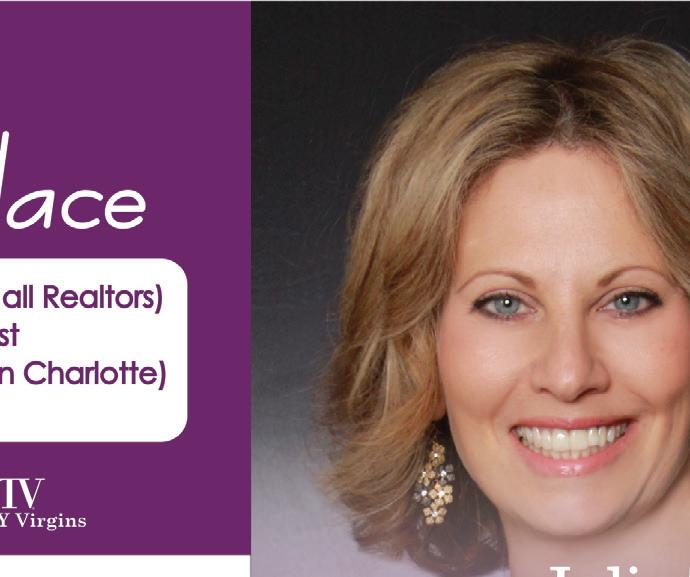


In 1945, the term “Holocaust” was not widely used to refer to the genocide attempted by the Nazis and their collaborators. The only “education” related to the event was the eyewitness testimony of the survivors, whether through courtroom testimony or written memoirs. Now, almost 80 years later, Holocaust education is a widely recognized and highly specialized field of study. Throughout those decades, the focus and intent of Holocaust education evolved significantly.
During the postwar era, the focus was on international law that could adjudicate those accused of genocidal crimes. Memorialization of the Holocaust took place mostly among the Jewish community. During the 1960s, the first basic lessons were introduced to the U.S. public. People become aware of the horrors perpetrated by the Nazi
regime through survivor testimony and the highly publicized Adolph Eichmann trial. During the1970s, formal education programs emerged, with a focus on learning about the historical facts. A moral shift occurred in the 1980s with the introduction of the concepts “upstander,” “bystander,” “perpetrator,” and “victim.” During this time, the focus widened to include motivations and actions of “ordinary people.” Teachers asked students to consider motives and responses along with the history lessons.
A more nuanced understanding of human behavior as “fluid” challenged rigid categories and complicated Holocaust pedagogy. Educators were not just teaching the history but also were asking students to explore social, political, and economic systems that contributed to the Holocaust.
In the 1990s, the international community began to advocate for mandatory education about the Holocaust. The field of Holocaust education continues to
evolve today. There are those who question its relevance and effectiveness in the American school system. As the space between the end of the war and the present day widens and eye witness survivors pass from our midst, the lessons of the Holocaust recede into the background for students and educators alike. There is a need for a pedagogy (a teaching practice) that meets the educational needs in a “post-survivor” 21st century.
In seeking to contribute to the exciting field of Holocaust education and pedagogy, the Greenspon Holocaust and Social Justice Education Center is developing new methods by which to train teachers and increase their influence on student learning. Over the course of 2022, the Greenspon Center will be introducing a certificate program that will empower educators to ask questions and think critically about why the Holocaust happened, what it means for learners today, and how we can engage others in our schools and com-
munities to do the same. It will meet the necessary educational standards in North Carolina and complement the recent mandate for Holocaust education in the state by engaging educators in conversations about the new “Gizella Abramson Holocaust Education Act.”
We will offer two tracks, namely, one for active classroom teachers and one for community educators. The certificate program will help participants learn skills that will engage students in the lessons and have students examine the intersections between events, geographies, individuals, and political relationships. It will elevate the use of historical artifacts to bridge the growing historical gap our youth experience while studying this topic. Crucially, the program will help educators and community members understand how to use avenues for social and civic engagement with their students.
We are excited to announce that we have engaged Dr. Christine Beresniova to assist in this
initiative. Dr. Beresniova is a sociocultural anthropologist specializing in education policy and teacher practice. She was the executive director of the South Carolina Council on the Holocaust, where she expanded Holocaust education initiatives across the state and helped revise the state standards for Holocaust education. As an educational program coordinator for the U.S. Holocaust Memorial Museum, she ran international and national Holocaust training programs for educators and members of civil society. Dr. Beresniova received fellowships and grants from the Mandel Center for Holocaust Studies at the U.S. Holocaust Memorial Museum, the Woodrow Wilson International Center for Scholars, and the Fulbright Association, among others. She has a Ph.D. in education policy from Indiana University and an M.A. in international education from George Washington University.

While confronting continuous operational challenges posed by the pandemic, the Foundation of Shalom Park (FSP) spent 2021 working on an issue of equal or perhaps greater long-term importance to the campus community, namely, establishing a common understanding and practice around principles of diversity, equity, and inclusion (DEI).
The catalyst for this important work was a 2021 Adaptation & Transformational Fund grant from the Jewish Federation of Greater Charlotte. A task group of staff members and lay leaders from various Shalom Park organizations was formed to take on the assignment, led by Foundation board member Adam Bernstein and facilitated by Executive Director Terri Beattie.
“Shalom Park is a remarkably complex and increasingly diverse place, with hundreds of Jewish and non-Jewish visitors, members, employees, vendors, and others interacting here weekly if not daily,” Bernstein said. “Given its oversight role, especially around risk management, FSP needed appropriate policy and systems in place to address DEI issues that could arise. We hoped the project also would inspire and aid other Park organizations in advancing their own DEI efforts.”
The task force began by creating a DEI policy for the Foundation, which could serve as a
model for other organizations. As a complement to the policy, a value statement includes language that summed up the intent and importance of the project:
“Jewish text and tradition teach that all people are created B’Tzelem Elohim, in the image of God. As such, we strive to recognize and tend to that divine image in our encounters with each person. We are also commanded ‘v’ahavta l’reiacha kamocha — love your fellow human as yourself,’ from which we understand that it is up to each of us to care for each other … We recognize that in society at large and on our campus, barriers to success and well-being exist for people of color and those who have been disadvantaged. Our organization is committed to acting as a catalyst to remove these obstacles for the benefit of everyone who works at and visits Shalom Park.”
The foundation board approved the DEI value statement and policy in September. Several Shalom Park agencies are studying the policy to develop or augment their own. Beattie said DEI training for FSP staff will begin in early 2022.
Additionally, the DEI task force facilitated participation by several community members in Race Matters for Juvenile Justice, an intensive two-day workshop provided by the Racial Equity Institute. The task force has now turned

When you visit, you will be asked to consider the importance of keeping history alive as it unfolds and have the opportunity to leave your thoughts about the time in which we are living — the history of tomorrow!

its attention to the next phases of its work: communications to raise awareness and education. It retained Darryl L. White Sr., assistant dean of Diversity, Inclusion & Community Engagement at Queens University of Charlotte, to survey Shalom Park organizations about their own DEI awareness and efforts. The task force will use White’s findings to identify areas of interest and need in order to design ongoing education and training for lay leaders and employees of Shalom Park organizations. Jewish Federation of Greater Charlotte recently approved a second year of Adaptation & Transformation Fund support for the task force’s work.
“This is a dedicated and passionate task team that has done excellent work to date,” Bernstein said. “In 2022, we hope to take great strides toward achiev-
DEI Task Force
Adam Bernstein – Chair and FSP Vice President, Board of Directors
Rick Glaser – FSP President, Board of Directors
Terri Bea�e – FSP Executive Director (ex-officio)
Howard Olshansky – Jewish Family Services Executi ve Director (ex-officio)
Members
Ann Baumgartner – Moishe House / Global Human Resources Officer
Ginger Brock – Temple Beth El / Tot Shabbat Chair.
Jimmy Collins – Charlotte Jewish Preschool Board Member
Tamika Jackson – Levine Jewish Community Center / Chief Financial Officer
Joseph Machicote – Chief Diversity and Inclusion Officer / Premier Inc.
Tara Spil – Artist – Charlotte Jewish Preschool / VP Development - Board of Directors
Ron Weiner – Temple Israel Past President
ing the goal of a sustainable DEI framework of policy and action that honors Judaic teachings and the principles on which Shalom Park was created.”
The Foundation of Shalom Park is a 501(c)(3) nonprofit agency that owns and manages the properties and facilities for most of the organizations that are located on the central campus of Shalom Park.

For more information about the Certificate in Holocaust Pedagogy program, please contact Talli Dippold dippoldt@queens. edu.
Help Us Shine!
We are so excited to announce that the Greenspon Center, in partnership with Levine Museum of the New South and The Anne Frank Center at U of SC Columbia, is bringing to Charlotte the exhibit “Anne Frank: A History for Today.” The traveling exhibit gives us glimpse into life in Amsterdam during the Nazi invasion and occupation through Anne’s writings.
Students from throughout Charlotte will be trained as docents for this exhibit, each creating a tour that is unique and personal. Docents will be available at different times to give you a one-of-a-kind experience.
Visit with us from March 4 through March 21 at the Levine Museum. For more information, contact Donna Tarney at tarneyd@queens.edu.
We would like to thank the following sponsors for their generous support of this event:
Meredith and Howard Glazer
Shana and Oscar Suris
Suly Chenkin
Betsy Rosen and Liam Stokes
Lynne and Stu Cojac

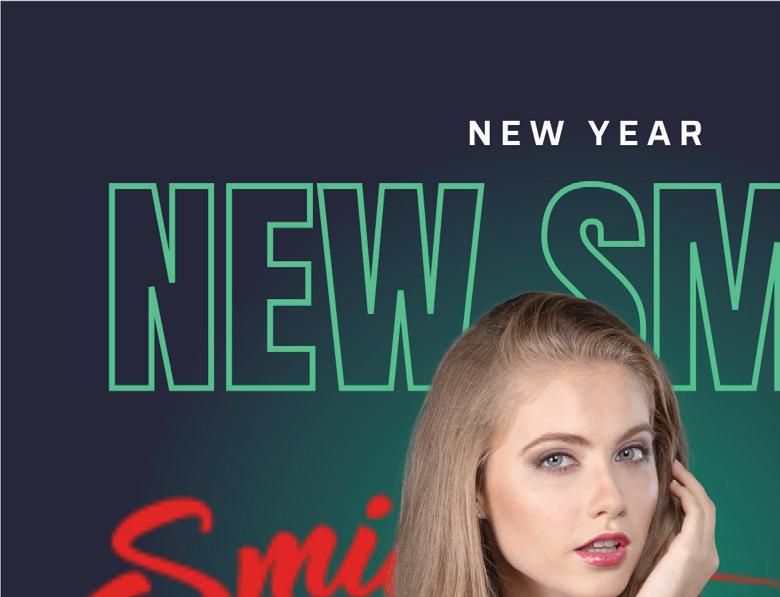


Promoting emotional health and well-being has long been at the heart of Jewish Family Services’ (JFS) commitment to our community. JFS offers mental health services for individuals of all ages, working with children, teens, parents, adults, and seniors to address life’s many challenges. JFS commits to serving each client individually, meeting them where they are and working with them as a team to bring healing and hope. During the past two years, this commitment has grown even stronger, and with good reason.
In late 2021, Dr. Vivel Murthy, U.S. surgeon general, issued an advisory to bring attention to the urgent need to address the nation’s youth mental health crisis. “Mental health challenges in children, adolescents, and young adults are real and widespread. Even before the pandemic, an alarming number of young people struggled with feelings of helplessness, depression, and thoughts of suicide — and rates have increased over the past decade,” he said. “The COVID-19 pandemic further altered their experiences at home, school, and in the community, and the effect on their mental health has been devastating. The future well-being of our country depends on how we support and invest in the next generation.” (https://www. hhs.gov).
The COVID-19 pandemic has had sweeping effects on the mental health across other age groups as well. According to the Mayo
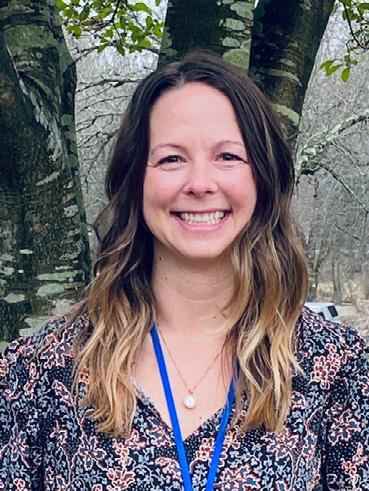
with the therapist, creating a plan, setting goals, and knowing they have a safe and confidential space to explore their experiences. Family therapy involves two or more family members working together to improve communication, address family challenges, and create more “shalom in the home” for everyone. Couples counseling involves members of the couple working as a team with their therapist to strengthen communication and build skills to work together as a cohesive unit. Parenting sessions focus on learning new skills and techniques to help children grow and flourish, no matter the circumstance.
“Mental health challenges in children, adolescents, and young adults are real and widespread. Even before the pandemic, an alarming number of young people struggled with feelings of helplessness, depression, and thoughts of suicide — and rates have increased over the past decade. The COVID-19 pandemic further altered their experiences at home, school, and in the community, and the effect on their mental health has been devastating.” Dr. Vivel Murthy, U.S. surgeon general
The workshops will be open to senior adults (60+) starting in May 2022 and include a “Healing Through Movement” series with a trauma-sensitive yoga instructor, a “Healing Through Music” series with a trauma-trained music therapist, and a “Healing Through Creative Arts” series with a healing arts facilitator. The workshops will be offered at the Levine Jewish Community Center and another community center in Charlotte, as the JFNA grant includes an expansion of services to a diverse population of seniors.
Clinic, “Surveys show a major increase in the number of U.S. adults who report symptoms of stress, anxiety, depression, and insomnia during the pandemic, compared with surveys before the pandemic.” ( https://www. mayoclinic.org). JFS offers an array of services aimed at addressing these challenges. Therapy services, also called “counseling” services, are offered both in person and via a private and confidential telehealth platform. For some clients, especially seniors, meeting in their home may be the best fit. For others with busy schedules or transportation challenges, or folks who continue to socially distance at a higher level, using telehealth continues to offer the flexibility and access they need.
Individual therapy involves the client working one-on-one
Happy Birthday to Bill Gorelick
Paul and Lynn Edelstein
Happy Birthday to Burt Greenspon
Burt and Donna Greenspon
Happy Birthday to Gloria Lerner
Paul and Lynn Edelstein
Happy Birthday to Harry Lerner
Paul and Lynn Edelstein
Happy Chanukah to Mrs.
L.B. Keller
Sandra Weinstein
In Honor of Dana Kapustan and Roberta Rodgers
Amalia Warshenbrot
In Honor of Barney and Harriet Weinstock
Ralph and Sonni Besnoy
In Memory of Janice Berlin
Stuart and Carolyn Hennes
In Memory of Harry Berzack
Keith Greenspon
In Memory of Judith Coen
Ron and Jan Weiner
In Memory of Howard Dumont
Jeff and Janet Ganoung
In Memory of Richard Grifenhagen
Sandra Weinstein
In Memory of Jack Helfand
Elaine Eisenbaum for Hank
Greenberg and his parents
In Memory of Jack Poznansky
Francine Poznansky
In Memory of Pam Segal
Paul and Lynn Edelstein
JFS therapists are trained in several types of therapy practices, including Triple P Parenting, which is an evidence-based parenting program and can be used with parents and caregivers of children ages 18 months-18 years. JFS also has therapists specifically trained in trauma and trauma recovery. Cognitive Processing Therapy (CPT) is considered one of the most effective therapy treatments to help clients heal from traumatic events in their lives. JFS’ newest therapist, Sara Scheibner, is trained and certified as a “quality-rated” CPT provider and has practiced the model for several years.
In addition to these more “traditional” therapy styles, JFS has recently been awarded a grant through Jewish Federation of North America (JFNA) to provide programming for senior adults who have experienced
trauma. The JFS Senior Engagement Team has developed a series of interactive healing workshops, using trauma-sensitive providers, including therapeutic music, yoga, and creative arts classes to offer a non-traditional choice for seniors seeking support and healing after the last two years of isolation and difficulty. The program focuses on both recent trauma (as many experienced loss and isolation during COVID) as well as more traditional concepts of trauma experienced during the lifetime (wartime, domestic violence, accident, loss of a loved one through suicide or violence, Holocaust survival).
JFS’ tagline is “Engaging, Connecting, Healing,” and the range of traditional and non-traditional therapy services offered aim to do all three. If you or someone you know needs support or is interested in the upcoming healing workshops for seniors, please call JFS at (704) 364-6594 or email info@ jfscharlotte.org.
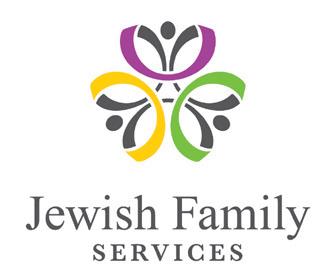
In Memory of Perry Sparks
Ron and Janice Weiner
In Memory of Carol Speizman
Margie Levenson
Gary Silverstein
Paul and Lynn Edelstein
Mazel Tov to Teri and Bernie Ackerman on the birth of Samuel Wayne Ackerman
Paul and Lynn Edelstein
Mazel Tov to Joel and Wendy Kweskin on the birth of Yardenne Michal Weiss
Alan and Madeline Aron
Wishing Jack Mendel a Speedy Recovery
Sandra Weinstein
Volunteers: Marcia Arnholt, Mike Arnholt, Bonnie Bonomo, Suzy Catennazo, Dan Coblenz, Jessica Cohen, Jonathan Collman, Andrea Cronson, Julie Dermack, Irene Dynnikov, Sheryl Effren, Terri Fishman, Rachel Friedman, Rob Friedman, Meredith Gartner, Marty Goldfarb, Richard Goldsmith, Jennifer Golynsky, Gail Halverson, Rebecca Hockfield, Hubara Family, Bob Jacobson, Jodie Joseph and Lester and Emma, Michael Kaplan, Etti Krause, Elliot and Stephanie Krietman, Marcia Lampert, Adam Levy, Kim Levy, Matt Luftglass, Gene Marx, Frada Mozenter, Barbara Rein, Nina Rose, Lynne Sheffer, Noah Semel, Cindy Siesel, Scott and Suzanne Silverman, Louis Sinkoe, Lorin Stiefel, Ken
Stern, Steve Teich, David and Beth Thrope,, Susan Webber, Nancy Wielunski, Jan Weiner,
Amanda Zaidman
Hadassah Meal Preppies: Sharon Cavanaugh, Karen Futtersak, June Hirschmann, Yvette Jacobson, Johnson and Wales, Judy Kaufman, Penny Krieger, Andy McCleary, Helene Schillian, Marcia Stern, Elissa Vining
Food Drives: Aarav Bhasker, Madeline House, Charlotte Jewish Day School, Generations at Shalom Park
Shalom Green: Thank you to your volunteers who continue to plant and harvest produce for JFS.
Food Pantry Donations: To our generous community: thank you for continuing to donate to the food pantry. We continue to collect donations every other Wednesday.
Over the past 10 years, mental health issues have been on the rise in our country, with one in five individuals currently experiencing some form. The past two years have been especially challenging, as the pandemic has increased stress, anxiety, and depression for many. We know that many of these challenges are the result of concerns directly related to COVID, such as concerns about job loss or getting sick and having friends and family with similar concerns or perhaps even becoming ill or dying. One factor, however, that has not been adequately addressed is the relationship between technology and mental health.
Prior to the pandemic, we knew that the use of certain forms of technology, especially social media and mobile devices, could directly contribute to increased stress, anxiety, and depression. In a February 2020 article in Medical News Today, author Jon Johnson acknowledges that though some forms of technology have improved our lives, there is evidence of

negative physical and psychological effects of technology and its overuse as well.
Overuse of social media and mobile devices can lead to eyestrain, difficulty focusing on important tasks, reduced sleep, and a reduction in physical activity. It is highly interesting that the physical effects of technology overuse, especially reduced physical activity and sleep, directly correlate to an increase in mental health issues.
It may also contribute to more serious health conditions such as depression. In the article, Johnson cited a February 2017 study
of young adults, ages 19-32, stating that people with higher social media use were more than three times as likely to feel socially isolated than those who did not engage with social media as often.
In addition, Johnson pointed out that the use of technology, especially during the pandemic, has reduced our ability to separate our work and home life. Increased access to work through technology, such as easy access to work emails and documents, has brought work stress into our home life. Without the natural transition of traveling from work to home, it takes a concerted effort to relax and separate ourselves from our work. (https://www.medicalnewstoday.com/articles/negative-effects-of-technology)
A 2021 infographic created by Etactics identifies both the positive and negative effects of technology on mental health. The infographic highlights how the use of technology enables many to access medical support, mental health counseling, entertainment, and social connections. On the other hand,
The bottom line is that balance in the use of technology is important. Some who cannot manage that balance, they may end up struggling with technology addiction.
the data also reveal that 73% of heavy social media users report feeling lonely compared with 52% of light media users, and 70% of people reported that they would feel depressed, panicked, or helpless if their phone went missing. ( https://etactics.com/ blog/negative-effects-of-technology-on-mental-health)
The bottom line is that balance in the use of technology is important. Some who cannot manage that balance, they may end up struggling with technology addiction. Similar to other addictions, addiction to technology results when its use begins to interfere with daily functions. Signs that someone might be at risk for addiction include a decrease in socializing, not eating or sleeping properly, and inability to complete regular chores and activities, and reduction in work productivity. The most obvious sign is the constant use of
an electronic device.
What we haven’t fully acknowledged, however, is that during the pandemic, keeping balance with technology and staying connected with others do not easily go hand-in-hand. As our familiar forms of social connection were taken away from us due to isolation and social distancing, we were forced to increase our use of technology to connect. The result, however, was that those who were at high risk for technology addiction were at increased risk.
As we emerge out of the pandemic, it will be more critical than ever to assess our use of technology. We need to ensure that we are using our devices and social media for all of the positives they were intended and not as the obsessions they have become.
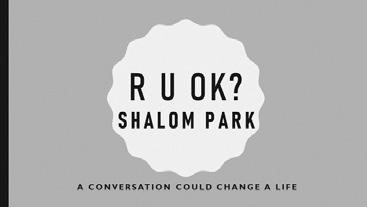

The Jewish year 5782, which began on September 7, 2021, is a shmita, or sabbatical year, marking the seventh year during which we are to “let go” of the cycle that is ending and embrace the next. The shmita year marks several cycles: an agricultural cycle, when all farmers leave the
land fallow for a year so it can regenerate for the next cycle of production; a labor and financial cycle, when all loans are forgiven and slaves are set free; and a national cycle, when everybody reaffirms their commitment to their short past and short destiny. “Shmita does for the nation what Shabbat does for the indi-
vidual,” said Rav Kook, the first chief rabbi of Israel.
In the midst of everything else driving the world faster and faster, and with the disruptions of COVID-19 challenging everyone, this year’s Jewish calendar demands that everything planted and sown and growing until now must be stopped. It’s true!
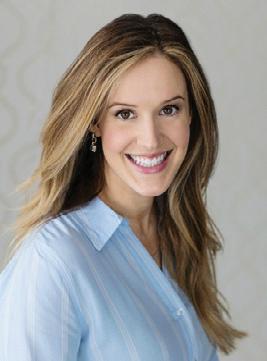
That’s the short version of shmita, the sabbatical year, whereby every seven years, a bundle of legal restrictions dating back to biblical times require us to halt agriculture and allow the land to lie fallow.
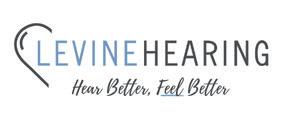
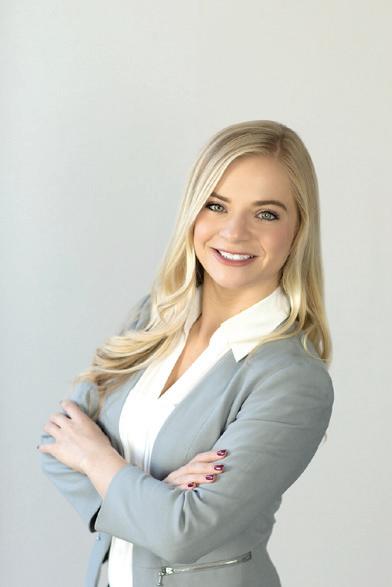
Environmental responsibility seems to be one of the principles underlying the three great commands of periodic rest: Shabbat (every week), the sabbatical (shmita) year (every seven years), and the jubilee (yovel) year (every 50 years; however, it has not been observed for at least two millennia). On Shabbat, all agricultural work is forbidden, “so that your ox and your donkey may rest” (Ex. 23:12). It sets a limit on our intervention with nature and the pursuit of economic growth. We remind ourselves that we are creations, not just creators. For six days the earth is handed over to us and our labors, but on the seventh, we may perform no “work,” namely any act altering the state of something for human purposes. Shabbat is thus a weekly reminder of the integrity of nature and the limits of human striving.
What Shabbat does for humans and animals, the sabbatical and jubilee years do for the land. The earth, too, is entitled to its periodic rest. The Torah warns that if the Israelites do not respect this, they will suffer exile: “Then shall the land make up for its sabbatical years throughout the time that it is desolate and you are in the land of your enemies; then shall the land rest and make up for its Sabbath years” (Lev. 26:34). Two concerns underlie this. One is environmental.

As Maimonides points out, land that is overexploited eventually erodes and loses its fertility. The Israelites were therefore commanded to conserve the soil by giving it periodic fallow years, not pursuing short-term gain at the cost of long-term desolation. The second, no less significant, is theological: “The land,” says God, “is Mine; you are but strangers and temporary residents with Me” (Lev. 25:23). We are guests on earth.
Václav Havel made a fundamental point in “The Art of the Impossible”: “I believe that we have little chance of averting an environmental catastrophe unless we recognize that we are not the masters of Being, but only a part of Being.” That is why a religious vision is so important, reminding us that we are not owners of our resources. They belong not to us but to the Eternal and eternity. Hence we may not needlessly destroy. If that applies even in war, how much more so in times of peace? “The earth is Adonai’s and all that is in it” (Ps. 24:1). We are its guardians and guests, on behalf of its Creator, for the sake of future generations.



Today, shmita is observed in the land of Israel, which creates some challenges for a modern nation of more than nine million people who still need to eat. An innovative legal workaround, known as the “heter mechira” (“sale permit”), allows the land to be worked by selling it to a non-Jew for the duration of the year. In recent years, a growing movement of thinkers and activists have pointed to shmita as a means of addressing the global environmental problems and economic instability of the 21st century and of challenging contemporary expectations of continual economic growth, development, and individual gains.
Jewish tradition teaches and commands responsibility, the importance of caring for the environment, for we must act as partners in preserving creation.
If you are interested in supporting Shalom Green or have ideas for educational programming, please contact us at info@shalomgreenCLT.org. Like us on Facebook, follow us on Twitter and Instagram @ShalomGreen_ CLT, and visit our website at www.shalormgreenCLT.org.
El (TBE) member Samantha Foodman’s husband, Adam, owns a huge truck. That truck proved critical to Foodman’s induction into the world of refugee resettlement. In late fall of 2021, TBE sent out an all-points bulletin to its congregants listing various ways to help Carolina Refugee Resettlement Agency (CRRA), the local affiliate of HIAS (formerly, the Hebrew Immigrant Aid Society), including a request for a truck to haul furniture to apartments for newly arrived Afghans. Enter Adam, Samantha, their three teenage boys, and a visiting house guest. After they helped haul furniture and set up an apartment, Foodman was asked if she could drive a few Afghans to an English language assessment and maybe on another day take that family grocery shopping. That Afghan family of seven, with children ranging in ages from 7 to 21, has now become a second family to Foodman. They’ve played soccer together and shared video games. The Foodmans were dinner guests at the house of their new Afghan friends (a house that, incidentally, is being rented to them by Temple Israel).
Since October 2021, CRRA, has received 105 Afghans who were evacuated out of Afghanistan in August. Approximately 70% of these Afghans are now housed in permanent housing. Family units range from four single men who will live as roommates to larger families of five or more. Volunteers prepare culturally specific hot meals for new arrivals, pick up donated furniture, and set up apartments complete with dishes, linens, toiletries, and furniture.
Betsy House, co-chair of the Income and Inequality Committee at TBE, which stepped up to assist with Afghan resettlement, reflected on how she accompanied CRRA staffer Annesley Banks to five Jewish homes in one day to pick up furniture donations: “CRRA is not Two Men and a Truck! It uses volunteers — some age 55 and older.” In addition to furniture, supplies needed include: shaving cream, umbrellas, bath mats, fire extinguishers, liquid hand soap, and can openers.
And in another effort to welcome Afghans to their new homes, Temple Israel’s Social Action group, chaired by Jonathan and Tess Berger, participated in a Greater Charlotte Community initiative welcoming Afghan Allies and Refugees to their new homes by providing 20 “welcome tea baskets.”
In the last six months, in addition to resettling Afghan evacu-
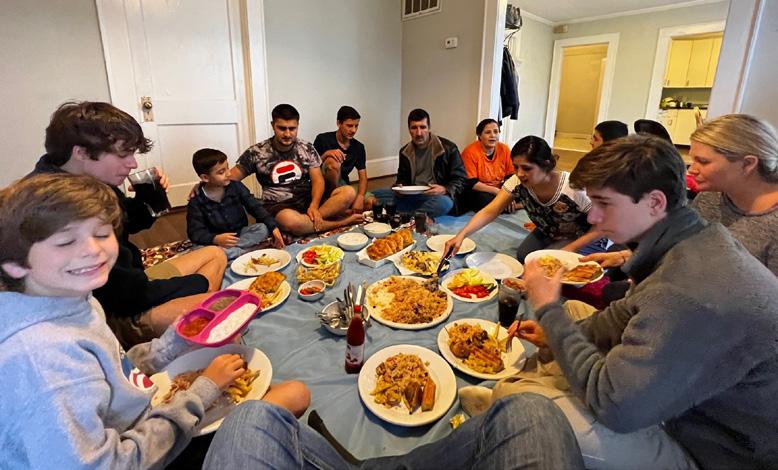
ees, CRRA has received 71 refugees from many other countries, including Syria, Sudan, South Sudan, Burma, Central African Republic, Congo, Guatemala, and Honduras.
Welcoming so many Afghan evacuees in such a short period while simultaneously resettling refugees from so many other countries, has been a Herculean task, especially given Charlotte’s affordable housing shortage. “We at CRRA really appreciate the outpouring of support for Afghan evacuees in recent months,” said Marsha Hirsch, executive director of CRRA, adding, “however, we still need two more rental houses or three-bedroom apartments for two larger Afghan families who are in temporary housing but are ready to sign a lease and move into permanent housing.”
Six members of the Jewish community have stepped forward to serve as guarantors on leases if that proves necessary, and the Jewish Community Refugee Initiative (JCRI) raised close to $40,000 for CRRA’s Afghan Emergency Fund. To assist with volunteering, donations, or housing, please visit CRRA’s website or contact CRRA Donation and Volunteer coordinator Annsley Banks at Annsley.banks@carolinarefugee.org.
Lindsay LaPlante is executive director of Refugee Support Services (RSS), an agency that provides refugees with many programs, including classes that promote self-sufficiency (e.g., financial literacy, family literacy, first-aid), and a walkup help center to assist with understanding bills and communication with schools. RSS also has a Fruitful Friend program that pairs refugee families with American friends, who act much like the Foodman family mentioned at the beginning of this article, building lasting relationships that enhance the lives of all parties involved. RSS requires Fruitful Friends go through a general volunteer onboarding process (application, completion
Save the date: Tuesday February 8th- HIAS Call in Day of Action on the Afghan Adjustment Act
HIAS leaders are asking members of the Jewish community to call their Representative and Senators on Feb. 8th urging them to take action on the Afghan Adjustment Act which has not yet been introduced into Congress, but which may be included in a larger omnibus spending bill.

of a Refugee 101 session, and a background check). For information, visit www.refugeesupportservices.org.
Laplante implores members of the Charlotte community to understand that delays that some Afghan evacuees have faced in receiving permanent housing and necessary documentation (e.g., SNAP, Medicaid and healthcare, and employment authorization documents) is part and parcel of the rushed manner in which 70,000 people were put on planes and brought to the United States and that “everyone is working through an established process as best they can at the moment.” LaPlante expressed frustration with a recent Charlotte Observer article that was critical of Catholic Charities (the other local resettlement agency in Charlotte, which have agreed to resettle over 200 Afghan evacuees) instead of noting the need for systemic advocacy work in the area of affordable housing and health-care: “I have been working in refugee resettlement in Charlotte for 14 years, and people have always been moved into the same unacceptable living conditions because roaches, bed bugs, and faulty appliances are included in the rent at that price range in the City of Charlotte. There are no other options. If we believe it to be unacceptable for these Afghan evacuees, what about everyone who came before them and everyone who will follow afterward, immigrant or otherwise?”
Rabbi Judy Schindler encourages anyone interested in advocacy in the areas of affordable housing and immigrant justice to contact the Stan Greenspon Holocaust and Social Justice Education Center at Queens University. https://www.stangreensponcenter.org
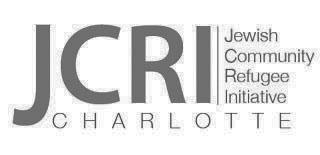

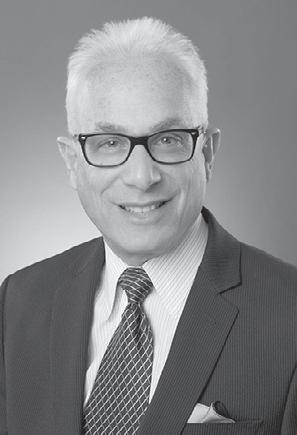


On a recent Tu B’Shevat holiday, my children and I planted trees at the Hebrew Cemetery. What more powerful symbol of legacy than trees? The sun was shining, we muddied our hands with dirt, and we handled large baby trees. I will remember the hours watching my children smile and play, helping me do something good to honor our family and honor the community we cherish.
One tree was special. We buried a ball, pictures, and a pocketknife in its hole. Someday, my grandkids will sit in the cool shade of that tree their parents helped me plant years earlier. Such are the meaningful traditions and rituals handed down by Jewish families for centuries. I suspect with some good work, our family will differ very little.
I’ve been thinking a lot lately about growing up as a Jew here in Charlotte and all the drips of water over 40 years that have helped polish my stone. My family was active in the Jewish community, and I grew up in the Jewish Community Center (JCC)
and at Shalom Park. I remember The Hebrew Academy, splinters from the old wooden playground, and games of hide and seek. I remember game room bumper pool and quarters from the front desk, hours of pickup ball, sleepovers, Dad playing tons of racquetball, and lots of Sunday bagels.
Funny what is sticky from my past. Sure, most childhood memories are selective and rose colored, but I still get to touch the same brick in the JCC hallways, sit in Gorelick Hall, see banners in the rafters, or get truckin’ down Providence Road, again, on my way to synagogue — many times with the same albums playing on the player.
One big difference is that when I get home, I won’t ever hear the soft Alabama drawl of my dad saying my name. Those days have ended.
Dad, or our Papu, died in February 2016 from Parkinson’s disease, and technically he stopped saying my name years before he passed away. I thought I bared my soul giving his eulogy, but lately I get pretty choked up when I think about the beauti-


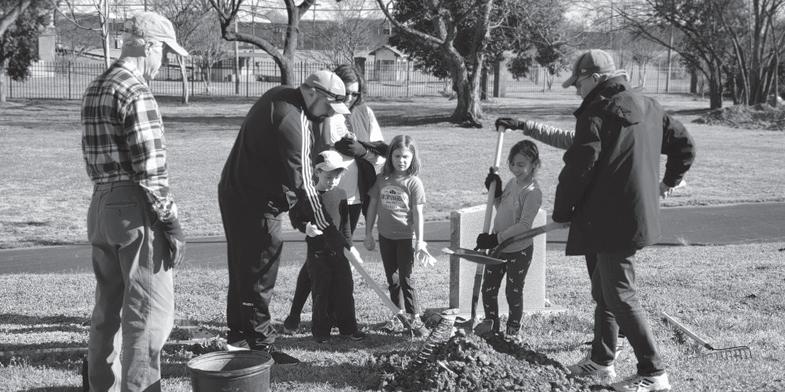
ful family and life I’ve made that he will never know. He was a family man, and I think he’d be proud. That doesn’t keep me from wiping away the tears. Random songs and daydreams can break me quickly. Recently it happened on the way to a family portrait photoshoot, and Renee wasn’t too happy with my swollen eyes (the pictures will be amazing). The song, nothing too sentimental, was “The Wreck of the Edmund Fitzgerald.” It’s a lovely ballad, but Papu was more of a Neil guy. These days I humor the kids with stories of Dad’s peccadil-

loes and favorites and wistful refl ections of how I, and they, are like him in so many ways. We feel Dad’s presence when we hear crickets and cicadas sing at night by the fire. The kids cannot look into his eyes anymore, but I see him in their eyes all the time. It’s a beautiful tribute — like the pocketknife buried in the hole of the tree we planted at the cemetery by his grave. For my kids and for the next 50 years, Papu’s legacy is visits to his grave and hugging that tree.
Another holiday season of joy, service, and gratitude has passed. If you’re not in that mindset, I

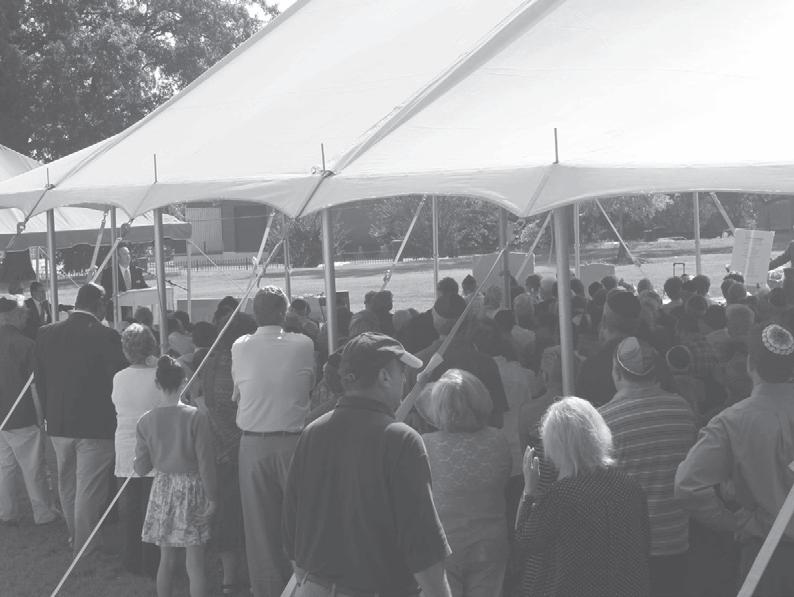
wish it for you soon. We reflected on a year well spent and look forward to a fresh slate of decisions to make. We’ll slip, trip, and fall, but we will learn and grow too and surely laugh and smile. Without ever knowing, we will make memories that could be sticky for someone we really care about, who one day will not be able to look into our eyes anymore. Isn’t that how traditions are born? Isn’t that why we go to plant trees? Our Jewish mothers and fathers inherited that legacy ages ago.
Fifty years into the future sounds long, but it’s not. Hopefully you were able to plant a tree this Tu B’Shevat; we didn’t. Tree planting is the long game, and I will not wait to fill my hole with Lego’s or Led Zeppelin CDs! I will enrich every moment of my living legacy with smiles, songs, and love, especially at the dawn of each year.
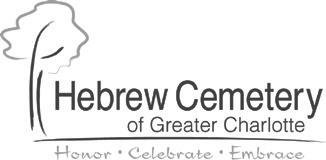
Why Plan Your Own Funeral?
• It’s a gift to your loved ones
• Provides you and your loved ones with peace of mind
• Don’t leave others to guess what you want for your funeral or forever place
Act Now
• Plan and record your wishes (no purchase necessary)
• Receive substantial savings on places and service fees
• Lock in costs and avoid future increases
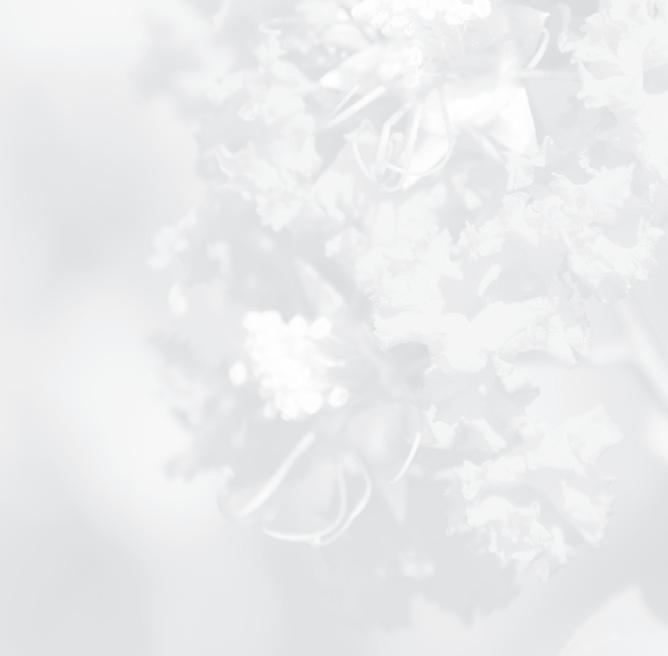

Ask about your forever place planning, green burials, cremations, markers, and more. Pay over 24 months or in one payment. Contact Director, Sandra Goldman at director@hebrewcemetery.org, or call 704.576.1859.
SUPPORT YOUR HEBREW CEMETERY ASSOCIATION
Make a tax-deductible annual membership of $108 or become a lifetime member for a one-time fee of $1,800.

www.hebrewcemetery.org
Across
1. Bronzes
5. Certain salad green
10. Some comps
13. Agnon of note
14. Feels pain
15. Feel pain
16. Muppet who's a spoof of Borscht Belt comics
18. "Give ___ break!"
19. 1979 sci-fi classic
20. Train depot: abbr.
21. Put in an overhead bin, say
22. "Pick six" INT results
23. Some synagogue leaders (seen in 60-Across)
26. HBO rival, in listings
27. One in Vegas, maybe?
28. Modern name of the country that once housed the center of Jewish life
31. Former Delta rival: Abbr.
34. Accepts advice from
38. Jerusalem destroyer credited with writing a chapter in Daniel
41. Displeased expression
42. Saltwater body
43. You don't want to catch them if you're fishing for a kosher diner
44. Italy's loc.
46. Palindromic family member
48. Kosher ones wont have real pepperoni
52. Nile serpent
55. Batman villain
56. Rubbish rummager
57. Barbara or Monica
59. Peacock network
60. Historic 1927 Jewish film...or its less historic
36. Indian cousin of cholent
37. Next yrs. Shana Aleph students, now
39. Rays slugger Nelson
40. Efes
45. Appraise once more
47. Contemporary of (Rav) Ami
48. First name among legendary 20th century artists
49. Machu Picchu architects
50. Tears down
51. Perlman who inspires
52. Harmon of "Law and Order"
53. Merneptah or Tel Dan that prove aspects of the Bible
54. Aspects
55. Akiva or Yaakov preceder
58. Woody Allen animated film
60. Advanced law deg.

1980 remake (with "The")
62. Menu phrase
63. Kettle's output
64. Tip to one side
65. iPad platform
66. Workplaces
67. What many catch up on on Shabbat...or another name for this puzzle
Down
1. Holy city with an artist's colony
2. "Get ___ of yourself!"
3. Villains of all villains
4. M or L
5. Cuba's Guevara
6. ___ magic lamp (lets Genie out)
7. Kind of derech
8. Poem division
9. One of 15 until 1991: Abbr.
10. Port-au-Prince place
11. It can determine an etrog's worth
12. Beans alternative
17. Bit of measurement
21. Made in-person co-workers nervous, nowadays
24. Planet where Luke gets captured by a wampa
25. Feel the burn, perhaps
26. Tight situation
28. Those who can hook you up
29. Stimpy's pal
30. Mary Todd's guy
32. "...and the bush ___ not consumed" (Ex. 3:2)
33. Summer drink
35.Nytol alternative, Sleep-___
61. Some text messages, for short

(Solution on page 31)



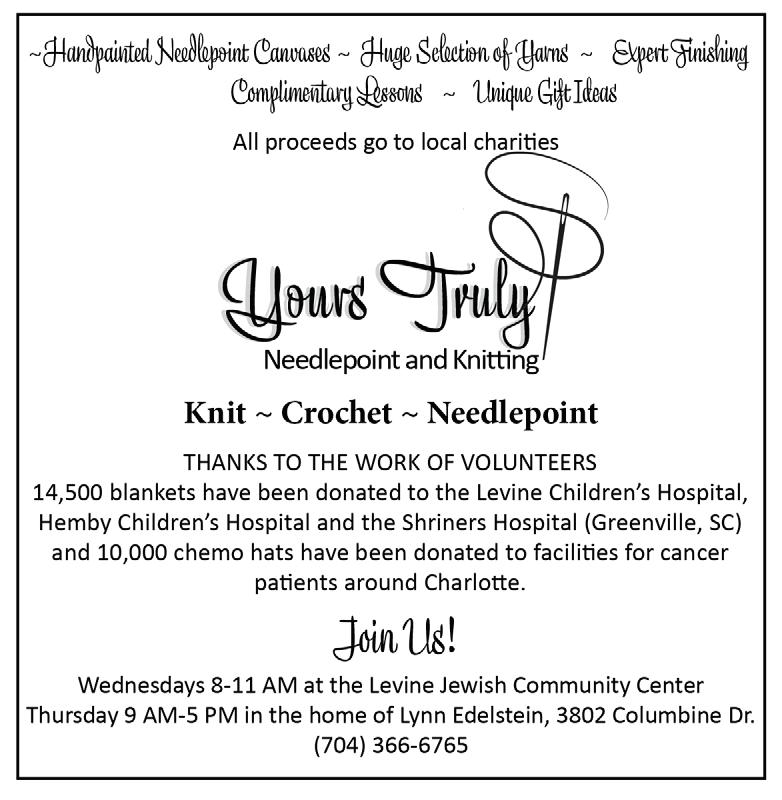
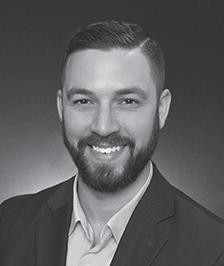

 By Cnaan Liphshiz, January 17, 2022 (JTA)
By Cnaan Liphshiz, January 17, 2022 (JTA)
A team of researchers said they have identified the person who betrayed Anne Frank and her family to the Nazis 80 years ago: a Jewish notary forced to work for the Nazis.
The man identified by a cold-case team that has been working for six years to identify the persons responsible for the discovery of the Franks by Nazi authorities in occupied Amsterdam was Arnold van den Bergh, a notary and a member of the Jewish Council, which the Nazis established to better control Dutch Jews.
The accusation is outlined in “The Betrayal of Anne Frank,” a book published Monday by the Canadian author Rosemary Sullivan.
It is eliciting criticism from Dutch Jewish leaders who say the accusation unconvincingly and possibly unfairly lays the blame for one of the most famous betrayals in history on a Jew who cannot defend himself.
The book details the work of a team led by Vince Pankoke, a retired FBI agent, that set out to answer a question that has confounded research-
ers since Otto Frank, Anne Frank’s father, first published her diary in 1947 and turned his daughter into an international symbol of the destruction of the Holocaust.
The cold-case team discovered a letter sent anonymously in 1945 to Otto Frank, the only member of the family who survived the Holocaust, according to the book.
“Your hiding place in Amsterdam was in that time partly shared with the Central Agency for Jewish Emigration in Amsterdam by A. van den Bergh, who had lived near the Vondel Park,” the letter said.
A researcher probing collaboration between the Dutch and the Nazis received the letter from Otto Frank in 1963, but its existence was not widely known, the Amsterdam newspaper Het Parool reported Monday.
Frank had said in the past that his family had been betrayed by Jews, the newspaper reported, but never publicly named van den Bergh.
The Jewish notary survived the Holocaust, making him part of a small minority of Dutch Jews to survive, and died in 1950.
Over the years, researchers
have presented various hypotheses on who may have betrayed the Franks to the Nazis, though none of the suspects were accepted as consensus.
A 2015 book identified Nelly Voskuijl, a niece of the Dutch resistance activist Elisabeth “Bep” Voskuijl, as the person who likely betrayed the Franks. The book alleged that Nelly Voskuijl was a Nazi collaborator who may have revealed the whereabouts of the hideout where her sister was helping the Franks hide.
In 2016, the Anne Frank House in Amsterdam, a museum devoted to the memory of the family, published a study alleging that the raid in 1944 on their house may have been over illegal trade in food rations and other issues and not the result of betrayal.
The cold case team cannot ascertain with certainty that van den Bergh betrayed the Franks, but did say that the theory involving him is the only one backed by evidence.
A handful of leading Dutch Jews responded to the new investigation by saying its conclusion should not be trusted — and might even be inappropriate to allege.


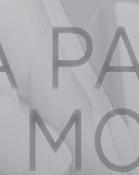




In a column published Monday in the conservative Dutch newspaper Reformatorisch Dagblad, Dutch Chief Rabbi Binyomim Jacobs condemned the accusation, saying it was “unethical” because it was not certain that van den Bergh committed the acts attributed to him and is unable to defend himself.
“It’s remarkable how the betrayal of Anne Frank and her family was laid at the feet of a member of the Jewish Council who can no longer defend himself,” Ronny Naftaniel, chairman of the Central Jewish Organization of Dutch Jews, wrote on Facebook. He added, “The assertion that Otto Frank knew about it but said nothing seems like speculation.”
Meanwhile, Bart van der Boom, a Leiden University historian who has written extensively about the Jewish Council, dismissed the findings of the cold case team as “libelous nonsense.” The letter sent to Otto Frank was written amid a “swirl of rumors about who betrayed whom,” the Historisch Nieuwsblad quoted van der Boom as saying.
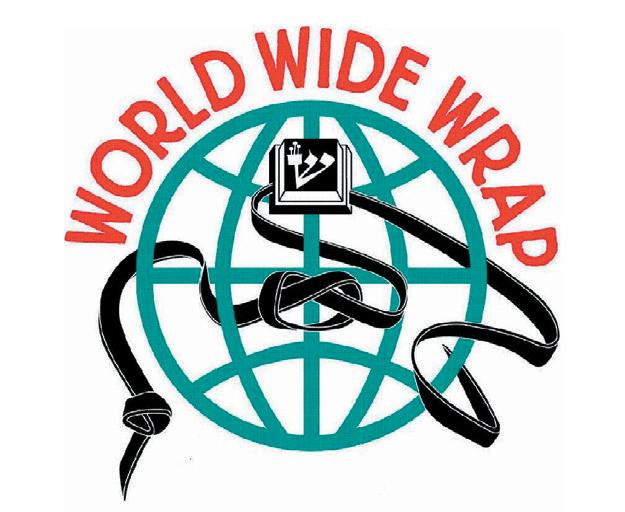
Learn how to fulfill the mitzvah of tefillin and join us for the 22nd Annual
Sunday, February 13, 9 a.m. (Super Bowl morning) at Temple Israel
The World Wide Wrap unites men, women and children in prayer, and it originated at Temple Israel! We will be wrapping tefillin together with hundreds of communities around the world, and will be joined by the parents and children from Temple Israel Religious School.
Chabad of Charlotte has been engaged on all levels in providing excellent quality Jewish educational opportunities for the Jewish community in the greater Charlotte area. The key to Jewish growth and vitality is knowledge and passion. The successful Jewish formula for thousands of years has been the careful and diligent transmission of Jewish knowledge and passion to the younger generation.
That means that the older generation needs to have gained both the knowledge and passion of Torah, Jewish theology, and Jewish values. Our generation is witness to a knowledge deficiency among Jewish adults. This can translate into a woeful level of ignorance or apathy in the younger generation.
The good news is that this condition is quite reparable. All it takes is a bit of commitment and diligence. Chabad of Charlotte has made the commitment to provide the avenues of knowl-

edge and to do it in a way that creates passion and joy in Jewish observance.
There is an abundance of educational opportunities, beginning with adults engaging through the highly acclaimed and popular Jewish Learning Institute, daily Talmud classes, weekly Torah studies, and much more.
In this article, we focus on the

senior teen program we have at Chabad of Charlotte.
Our Charlotte CTeens organization provides exciting and meaningful opportunities for Charlotte Jewish teens of all ages. CTeen juniors are provided for by the Ballantyne Jewish Center in coordination with Chabad of Charlotte. CTeen seniors are engaged by Chabad of
Charlotte.
“There’s this stereotypical notion that teenagers are just reckless, immature, and difficult,” says Rabbi Bentzion Groner. “That could not be further from the truth. Teenagers have insurmountable energy. At CTeens, we believe in the power of youth, and what we offer is a means of channeling that power in a positive and uplifting way.”
CTeens offers several programs with the goal of educating adolescents about the role of Jewish practice in daily life. One such program is “Kosher Food Club” (KFC), wherein participants learn about traditional Jewish foods and living a healthy lifestyle. Another is CTeenXtreme, a summer travel camp where campers challenge themselves both physically and spiritually by partaking in extreme sports, observing a complete tech-free Shabbat, and keeping kosher on the road.
To inspire the members to give back to their community, CTeen engages its members in a wide


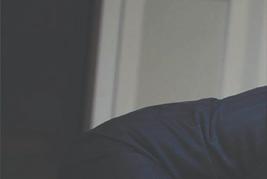

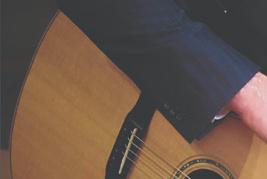



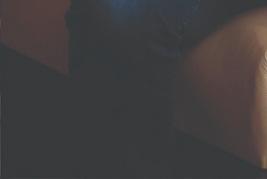






range of humanitarian efforts, such as preparing care packages for soldiers in the I.D.F. and distributing food to the needy.
CTeens seniors meet every Monday at Chabad for engaging Jewish experiences. Some of the teens are signed up for CTeenU Jewish Business School earning two college credits. Six Charlotte teens are signed up to represent Charlotte at the CTeen International Shabbaton, which will take place in New York.
For those interested in building their Jewish knowledge base and improving their appreciation of Jewish values, please contact Chabad of Charlotte at Chabadnc.org and open the door to the vast and deep world of Jewish knowledge opportunities that await.

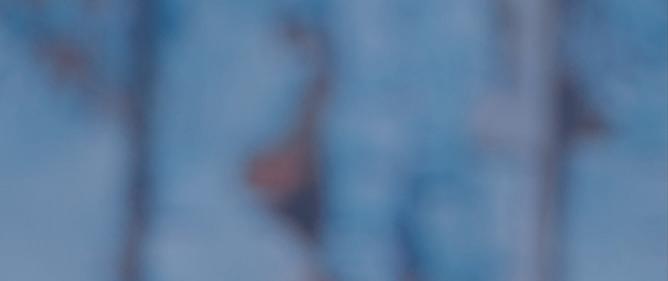


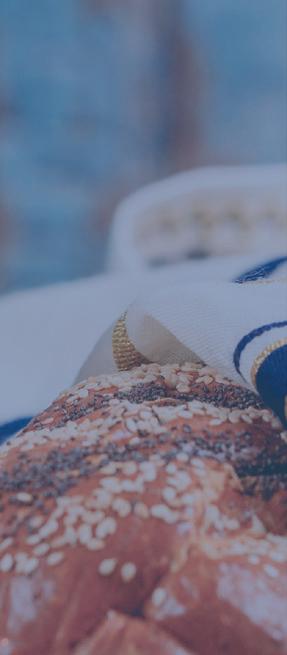

How do we start a new calendar year with hope when we have been through so much over the past two years. The majority of us are trying to keep a positive outlook, but it’s still challenging even when some days can be better than others. There are people who are genuinely navigating this new world success-


fully. A neighbor just returned from a wonderful vacation in Mexico and family gathering back at a joint location in the United States. They had a good experience, which is probably a result of meticulous, cautious planning, but this isn’t what we typically see on the news. Many of us cannot imagine traveling yet and live somewhat vicariously through those who do.
Most of my conversations, whether with family, friends, or even a random stranger, reveal the depth to which we have been affected. Recently a friend told me she was discouraged by seeing multiple people’s social media posts that gave the impression their world was normal compared to what she was experiencing. Deeper conversations, however, revealed many of the same people sharing those positive posts were struggling similarly to those who read them.
Proverbs 13:12 reads, “Hope deferred makes the heart sick, but desire fulfilled is a tree of life.” The longer a person goes without seeing their hope real-
ized, the more likely they are to become discouraged. What we need, especially now, is hope to encourage us. We need to rewrite some of our own stories to embrace that hope. It will inspire us, cultivate gratitude, and give us reason to help others and perform acts of kindness.
We are human. No matter how outgoing or positive we are, there are going to be days we feel alone, misunderstood, or just miss someone in our lives we haven’t heard from in a while. It took many years, but now whenever I miss someone I wish would call me, I pick up the phone and call them. They always express how grateful they are for my call, and often they tell me that they, too, missed me and were hoping I would call. Making the time and taking initiative to be the first one to reach out requires effort and courage, but comes with reward often enough that it is well worth taking that chance.
What inspires us to live? Is it seeing a friend? Reading a good book? Going on a hike? Creat-
ing art or engaging in a creative project? Helping someone else?
Maybe it is helping someone else. There is much truth in the wisdom that helping someone else actually helps both people involved. Even if someone doesn’t ask, bringing a meal to someone who has just had surgery or offering them a ride, for example, can make a difference. I recently thanked a friend who took me to the doctor five years ago, because I was reminded of that kind gesture. That led to me thinking about more people I might want to thank, no matter how long it’s been. I saw a man on the news who decided after 25 years to give his wife a more romantic proposal — they were in tears as the event unfolded.That’s hope!
The national anthem of Israel, based on text written by

Naftali Herz Imber in 1878, is called “Hatikvah,” meaning “the hope” or “our hope” in English. It has a proud and complex history, as do our people who have struggled no matter where we live on the globe. The interpretation that seems to fit our current situation best, however, is “Our hope is not yet lost.” In 2022, let’s do whatever we can to increase our ability to experience more hope.
Temple Solel holds regular Shabbat services at 7 p.m. on the second and fourth Fridays of each month via Zoom and hopes to resume services when appropriate at Belair UMC Family Life Center, 8095 Shelley Mullis Rd., Fort Mill, SC 29707. For more information about the High Holy Days, or guest speakers, see templesolelSC.org, write us at ino@templesolelSC.org or call (803) 610-1707.












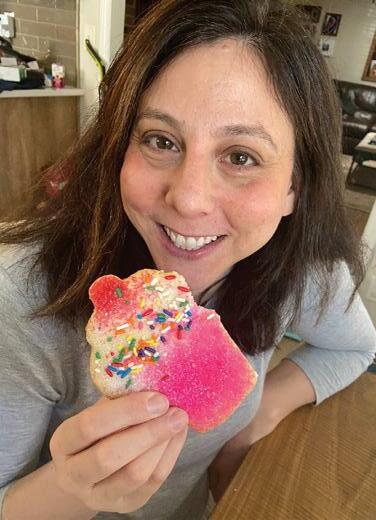
assimilated into American, and specifically Southern, culture. They embraced new technology (the family was one of the first in Atlanta to own an automobile) and fashion; they owned a clothing business and did well for themselves.
ship, and a proud sense that she was Jewish.
This month, I’d like to pay tribute to my 97-year-old grandma Betty Smolen, who passed away on January 4, 2022. Gramma Betty was born to a middle-class Jewish family in Atlanta, Georgia, in 1924. A second-generation American whose grandparents had come from Europe in the 1890s, she was already among those American Jews who had adapted and
The family’s approach to being Jewish strikes me as a conflicted one. Betty’s mother, Fannie, had been eager to loosen some of the Jewish customs and, so I’ve been told, gave up keeping kosher soon after her own mother’s passing. Of course, at the time, antisemitism was also a constant reality of life, and blending in with the non-Jews must have seemed like an appealing option. Betty’s children were turned away from the Girl Scouts, and it was her congregation, the Temple in Atlanta, that was bombed in 1958, just hours before my mom and her siblings would have been at Sunday school. Whether out of a desire to assimilate or perhaps out of personal preference, the family slowly let many of the traditions fall away. And yet Gramma always retained a majority Jewish social life, a synagogue member-
The family of six later moved to New Jersey for many years, but she never really felt at home there, and so when she got the chance to move back down south to Charlotte, North Carolina, to be with her son Paul’s family after my grandfather died in 1983, she took it. I think in Charlotte, she felt that she could return to her Southern Jewish roots. She remained secular and modern, but always with a proud Jewish flair. When I think about what she liked to eat, it seemed like a perfect blend of Southern and Jewish, just like her. In most of her married years, she had a livein housekeeper and nanny named Hattie B. Jones, who according to my mother was also a tremendous cook. Roasts, fried chicken, biscuits, paper-thin crispy cornbread, and German chocolate cake were among the favorite dishes Hattie brought to their table. Betty and her husband also had a soft spot for Ashkenazi classics: borsht, tongue sandwiches, gefilte fish, chopped liver, mushroom barley soup (she called it ‘butter bean and barley
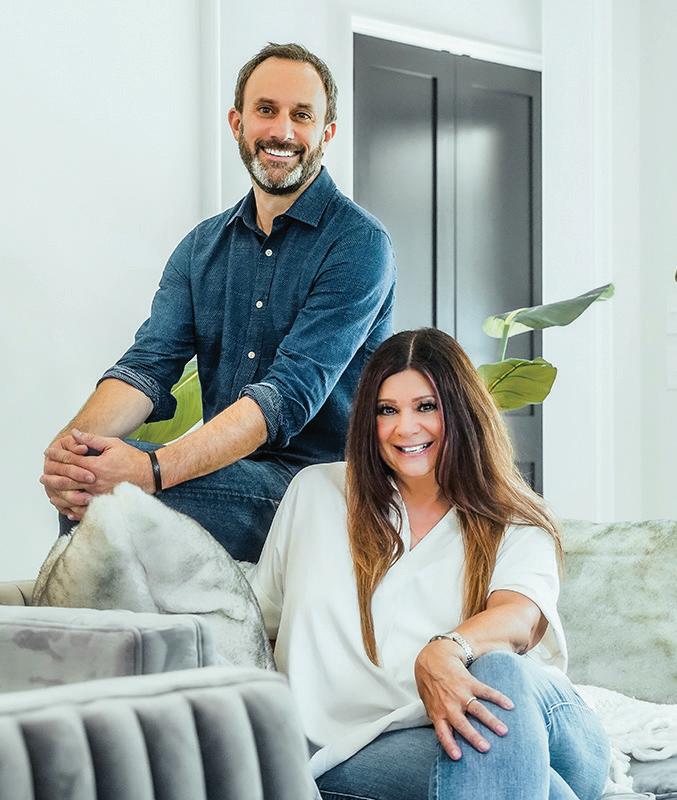


soup’), and mandelbroit. She told me she had fond memories of nibbling on gribnes when her grandma Sarah would render schmaltz and eating tender swirls of cinnamon shnecken (a small pastry) on Shabbat. I recall her also being likely one of the few regulars of Phil’s Deli at Strawberry Hill to always request the tongue sandwich. “Have you got tongue today, Denise?” She would ask. It was always a treat for her when it was available.. This comfortable combination of Southern and Jewish will always be how I remember her.
In that spirit, I’ll give you the very Atlanta Jewish recipe for Coca-Cola Brisket. This is great served as a traditional brisket or as pulled beef. I love mine with corn tortillas that I’ve quickly toasted over my gas flame using tongs. You can use the oven, stovetop, or instant pot. If using the instant pot, try cooking on high for about 1 hour.
Coca-Cola Brisket
2-3 lb pot roast or brisket
1 can of regular Coke
1 large vidalia onion, sliced ½ cup ketchup
1 tbsp crushed garlic
1 tbsp soy sauce
1 tbsp olive oil
Heat the olive oil in a Dutch oven or heavy, lidded pot over high heat. Add the meat and sear on both sides until lightly brown. Add the rest of the ingredients and stir gently. Simmer over low heat for about 2-3 hours or until tender. Add salt and pepper to taste. Cool for about 30 minutes before slicing or shredding, and then return to the pot with the sauce.
Nearly 50 million people in the baby boomer generation are entering their retirement years. This wave of “new seniors” is driving the senior living indus-
try to rethink its offerings and physical designs.
Baby boomers are defined as the generation born post-World War II, from 1946 to 1964. In the United States, about 10,000
very comfortably, and in retirement living they want the same upscale living features, amenities, and integrated technology they are used to.




















people a day turn 65 ( census. gov), and the oldest boomers are turning 76 years old in 2022. By 2030, all baby boomers will be at least 65 years old and the need for senior housing will be at an all-time high. Throughout their lives, baby boomers have significantly influenced popular culture and changed societal norms. This generation grew up during the turbulent ‘60s, experiencing and sometimes leading an era of reform. Boomers learned to question the status quo and challenge authority. They are a generation of independent-minded people, and they value individual choice. Baby boomers grew up during a time of heightened focus on health and fitness. They have experienced unprecedented economic prosperity and technological advancements. Combined, these circumstances have created a generation with high expectations for independence and quality of life. As they move towards retirement, boomers are redefining the ways we view aging and the senior living industry.
As beneficiaries of advancements in medicine and health, baby boomers expect to live lon-
ger than their parents and with more vitality. Boomers have the longest life expectancy of any generation in history. When the first boomers were born, the average life expectancy was 63 years old. Today, boomers can expect to live to nearly 79 years. They expect to remain active as they age, rejecting the stereotype of a wrinkled person in a rocker, and they are a generation that does not want to be stereotyped by gender, age, or socioeconomic status. Unlike the prior generation, which moved to utilitarian continuing care retirement communities (CCRCs) because they provided safety and security, boomers do not want to retire to these traditional models of CCRCs. Instead, they want to create a more customized lifestyle. They want communities that look more like college campuses and offer a wide variety of activities and opportunities that enable residents to pursue their interests and passions.
Baby boomers do not want to feel like they are living in a retirement community. Dining is an important consideration. The boomer generation values healthier meal options and wants a variety of dining venues. The traditional CCRC offers meals at a set time, but this “one-size fits all” approach will not satisfy the boomer generation that is looking for more experience-based dining venues and outdoor dining options.


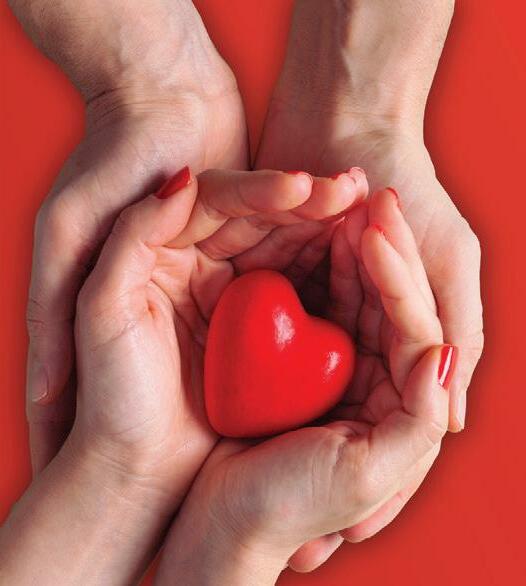

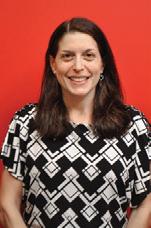
Post-World War II, the United States economy expanded rapidly. Boomers reached adulthood during the late 1960s and 1980s during this economic expansion. While the economic gulf in the United States has left many boomers struggling financially, many others have benefitted from the unprecedented wealth creation, building their savings and incomes. Currently, 35% of baby boomers have annual incomes of at least $100,000 (attributed to Angell Marketing in Senior Living, October 4, 2020). The Wall Street Journal reported that at the end of the first quarter of 2021, Americans 70 and older had a net worth of nearly $35 trillion — holding 27% of all U.S. wealth. More than 7.7 million people 65 and older in the U.S. are millionaires (Spectrem, July 25, 2021). Boomers have lived
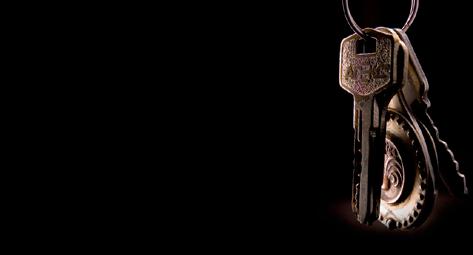
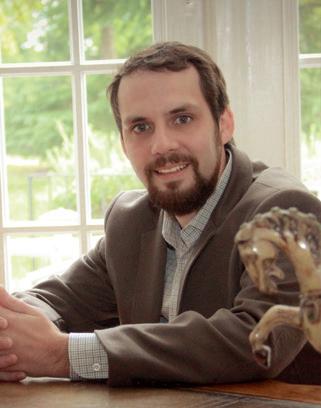
Although baby boomers may be changing stereotypes and expectations around aging, given the natural decrease of dexterity and mobility over time, even the healthiest boomers will eventually require health-care and/or assistance with day-to-day activities. The concept of aging in place is a response to boomers’ desires to live independently, even when they may require dayto-day help. Similarly, with age can come isolation and loneliness. Senior living communities are tasked with creating opportunities for boomers to socialize effortlessly, build personal relationships, and create community organically. One way to achieve this is to integrate the senior living community into the wider community, which provides opportunities for intergenerational socialization.
In response to baby boomers, the senior living industry is changing the look and feel of senior living communities and offering more customized services to satisfy the expectations and desires the boomer generation. Generations at Shalom Park is at the forefront of this movement. As a brand-new community, Generations will be able to fulfill the needs and expectations of the discriminating baby boomer generation. In addition to satisfying a variety of dietary preferences and experiential dining on site, Generations at Shalom Park will offer customizable apartments and amenities like a theater, premium gym, bistro, salon, and educational opportunities. Being located on Shalom Park, Generations will offer easy access to the LJCC, the many other activities and offerings at Shalom Park, and a uniquely intergenerational lifestyle.
To learn more, visit Generations at Shalom Park: generationsatshalompark.com or call (704) 532-5400.
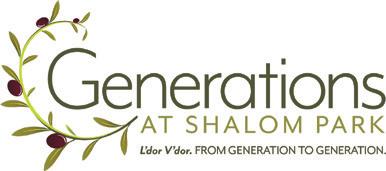



Because nobody ever complained about being overjoyed.

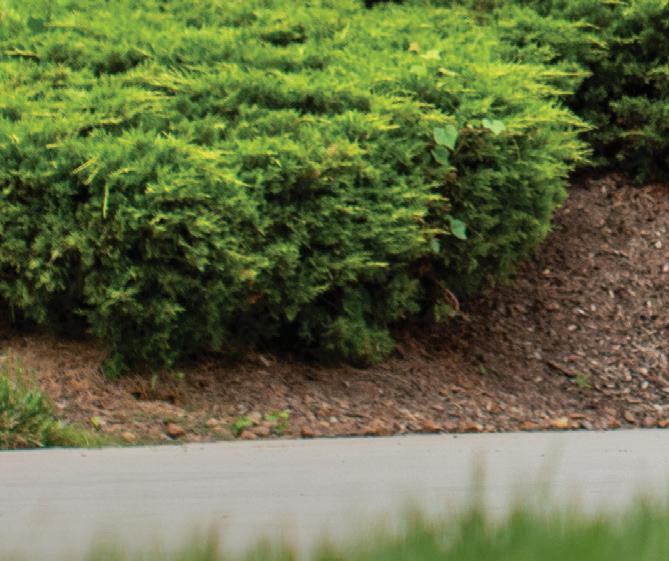
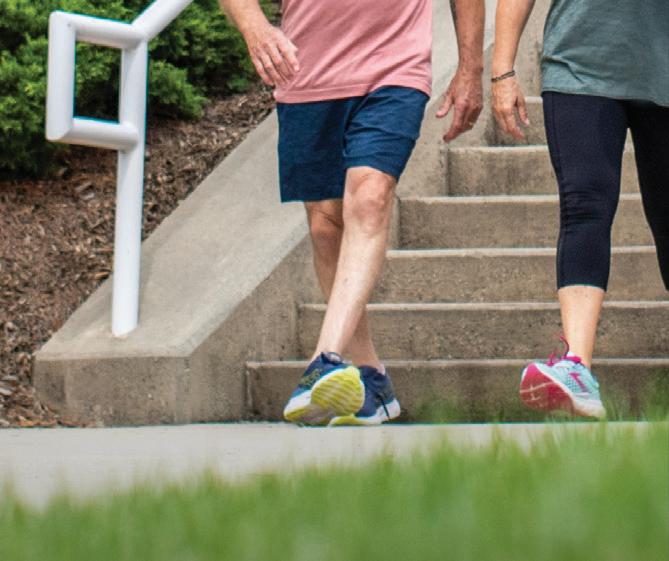

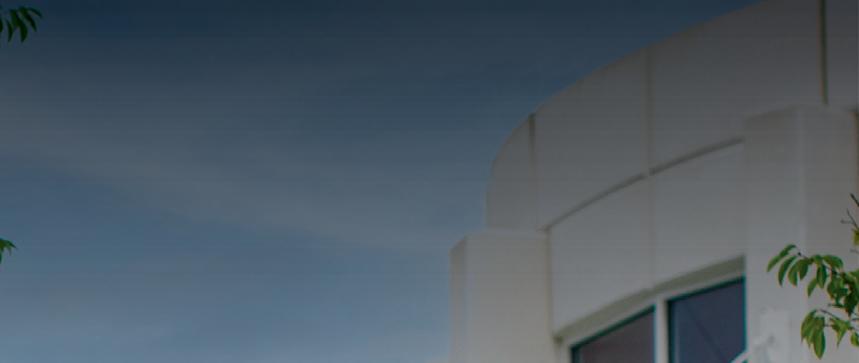
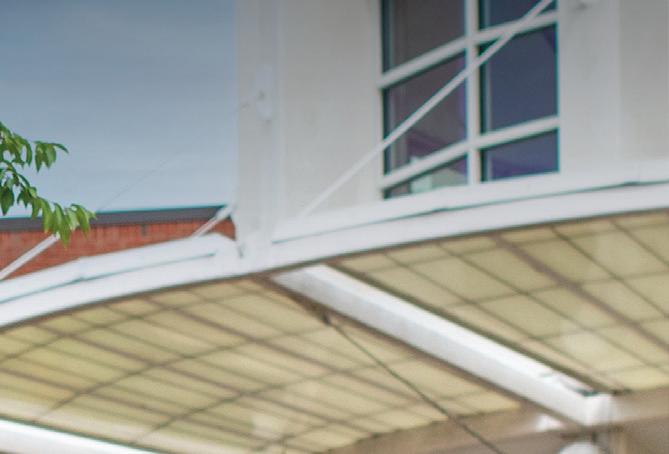
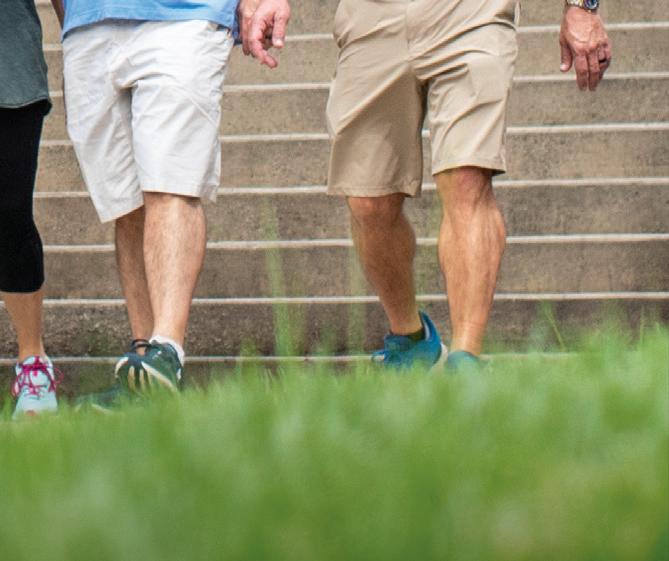

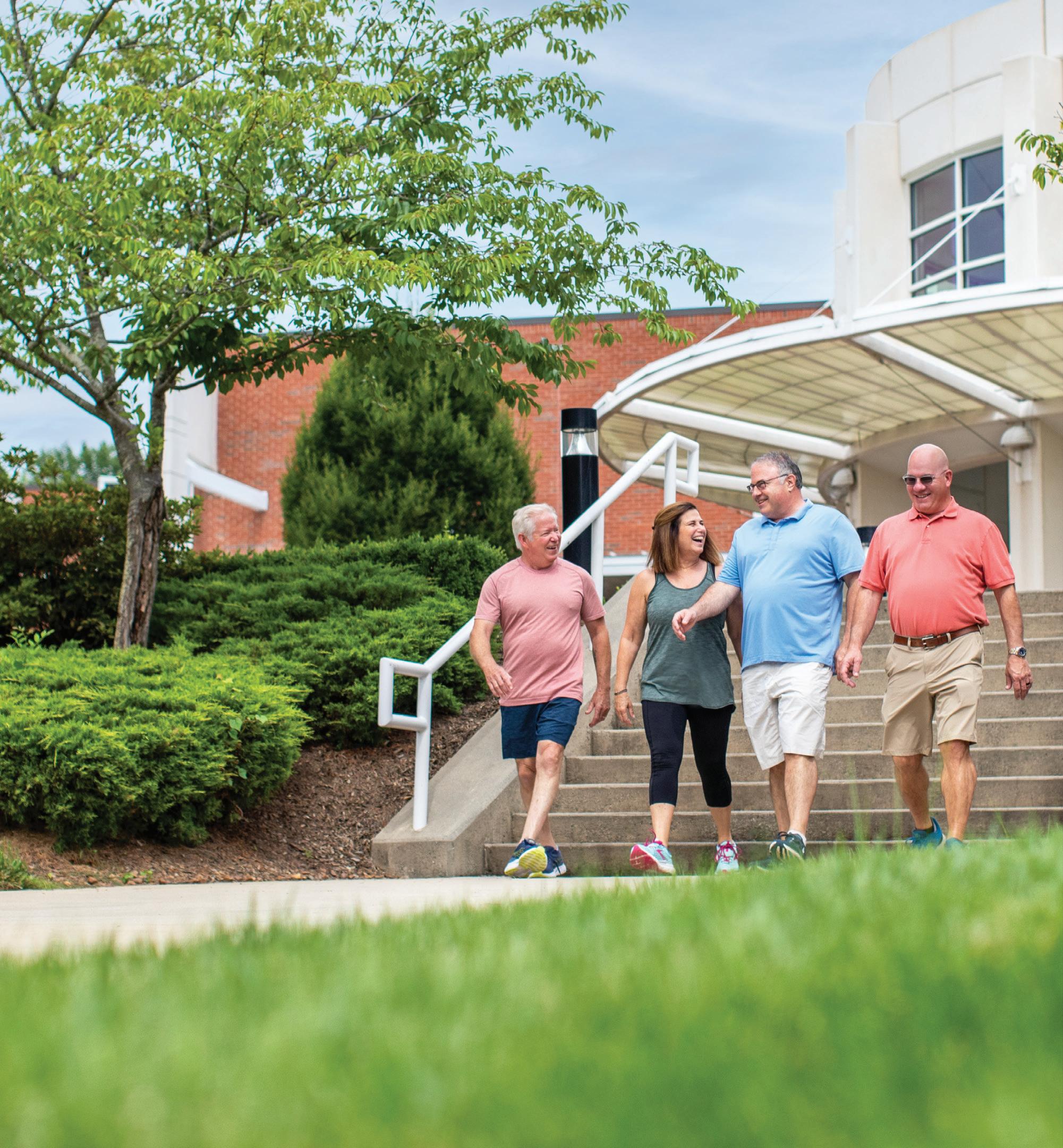
It’s all right here outside the door of your gorgeous modern residence in Generations at Shalom Park. Jewish in culture and open to all, Generations is offering an exceptional package of benefits for a limited time to those who are ready to join our Genesis Club.
(704) 736-3343
• generationsatshalompark.com
 By Lorrie Klemons, MSN, RN, CDP
By Lorrie Klemons, MSN, RN, CDP
Many of us will be thinking of hearts on the 14th of February. Rightfully so. We all want a joyful heart. We all want a loving heart. We all want a healthy heart.
Much has been written about the signs and symptoms of a
heart attack, but would you really be able to tell if you were having one? According to Dr Mehmet Oz of Oprah fame, 50% of people having a heart attack have no symptoms, especially women. Post-menopausal women are at higher risk but are often misdiagnosed. They are told it is acid reflux or stress. Women whose symptoms are dismissed by one doctor should be sure to get a second, and if necessary third, opinion until someone can determine the cause.
The medical term for heart attack is myocardial infarction, or MI. It actually means “irreversible damage to or death of heart muscle when blood flow to a section of the heart muscle becomes blocked.” When a person has an MI, part of their heart muscle dies or is badly damaged. The extent and location of that
damage will determine what the patient’s expected outcome will be. Some heart attacks are mild. Some are “widow-makers.” Some heart attacks have a sudden and intense onset. and there is no doubt what is happening. However, most MIs have a more gradual onset, and people tend to wait longer (on average three hours) before seeking help because they are not sure what is happening. They can’t tell if they pulled a muscle, are having heartburn, or getting the flu. They just don’t feel well. Men tend to deny symptoms, and therefore they delay early diagnosis and treatment that can be lifesaving. As a result, they have higher rates of morbidity (sickness) and mortality (death), which are often directly related to the denial of symptoms. Symptoms include, but are

not limited to: chest discomfort (uncomfortable pressure, squeezing, fullness or pain), discomfort in other areas of the upper body(pain, burning, aching, or discomfort in one or both arms, the back, neck, jaw or stomach), shortness of breath (with or without chest discomfort). Other signs include break-
The following individuals/families are in the Book of Life Society and have granted us permission to share with you that Temple Beth El has been included as a beneficiary of their legacy gift.
ing out into a cold sweat, nausea (feeling sick to your stomach), vomiting, lightheadedness, indigestion, or a feeling of fullness, weakness, rapid or irregular heartbeat.
Women may have diff erent symptoms than men. The most common symptom experienced by women who are having a heart attack is chest pain. However women are more likely than men to experience some of the other common symptoms such as shortness of breath, nausea/ vomiting, and back or jaw pain.
Keep in mind that symptoms may come and go or may be constant. The discomfort may be in one or more areas of your body or it may start in one area and move to another. You may have just one symptom or multiple symptoms. If you have had a previous heart attack, the symptoms of a second attack can be exactly the same or totally different.
Anonymous* (5)
Janet S. Abel
Bette Andrews
Judy and Stan August
Gail and John Baron
Sharri and Peter Benjamin
Benjamin and Elizabeth Benson
Adam Bernstein and Tammy Seigel
Andrew Bernstein
Mark (OBM) and Louise (OBM) Bernstein
Bobbi and Don Bernstein
Susan P. Bessey
Lee and Jeffrey Bierer
Martin Birnbaum
Peter Martin Blair
Jill Blumenthal
Philip Blumenthal
Lee and Alan Blumenthal
Gary and Susan Bogarad
Marian (OBM) and Walter Brawer
Barry H. Brodsky
Sera and Marvin Callif
Susan E. Cernyak-Spatz (OBM)
Bruce Bishop Cheen and Regina Rosenberg
Judith and Richard (OBM) Coates
Jena Coen
David Cohen
Paige and Mark Cohen
Denise and Bob Cooper
Andrea and George Cronson
Marcy and Fred Dumas
Barry and Mary Ellen Ezarsky
Larry Farber and Sherri McGirt
Henry (OBM) and Margaret (OBM) Federlin
Dorlisa and Peter Flur
Y’honatan E. Gimbel
Rick Glaser and Ellen Reich
Nancy Glass
Allen Gordon (OBM)
Alan and Merle Gottheim
Fay (OBM) and Dan (OBM) Green
Karen Greenblatt
Roslyn Greenspon
Keith E. Greenspon
Bill and Gloria Grifenhagen
Deidre and Clay Grubb
Ted and M.E. Hessberg
Vicki Hopkins
Christy and Andy Horwitz
Jonathan M. Howard
Donald L. and Susan Sachs Jacobs
David Jacobson
Alyson Kalik
Morton and Mary Kaplan
Andrew and Susan Karp
Barbara and Alan Katz
Kenneth & Kimberly Katz and Family
Joan Kirschner
Robert P. and Moira Quinn Klein
Lorrie and Barry Klemons and Family
Anita Strauss-LaRowe and Bruce LaRowe
Jack (OBM) and Carole Lash
David A. Lash
Gladys (OBM) Lavitan
Janet and David Lefkowitz
Harry and Gloria Lerner
Donna (OBM) and Norman Levin and Family
Ross C. Levin
Leon and Sandra Levine
Gary and Janie Levinson
Holly and Hal Levinson
Jack and Alison Levinson
Sam and Linda Levy
Laura and Marc Lewin
Wilson (OBM) and Margaret (OBM) Lewith
Robert (OBM) and Inta Lidz
Andrew and Gwendolyn Lindner
Marshall (OBM) and Faylinda Lindner
Jill and Marc Lipson
Don and Ellice Liss
Ron and Frances Liss
Annie and Harrison Lord
Linda McLendon
Michael (OBM) Meiselman
Elise Menaker
Staci and Darren Mond
Elsa and Martin Multer
Paula Sigal Musler
Bruce and Candace Naliboff
Leah M. Naliboff
Elizabeth and Jeremy Naman
Edwin and Jill Newman
Larry and Carole Nicholson
Michael and Judith Norman
Gwen and Paul Orland
Richard J. Osborne
Cyndee Patterson
Harriet and Mark Perlin
Diggie and Lee Pesakoff
Stephen and Laura Philipson
Milton and Gene Ruth Poler
Larry and Dale Polsky
Steven and Melissa Raphael
Tonda and Mitchell Rifkin
Wendy and Sandy Rose
Estelle and Murray (OBM) Rosen
Leon Rutman
Neil (OBM) and Caren Sacks
Neil (OBM) and Carol Sandler
Renee and Philip Schreibman
Mike (OBM) and Sara Schreibman
Chris and Jon Schuller
Howard and Andrea Seidler
Amy Jill Seitlin
Daisy Shapiro-Rieke / Julie Irma Shapiro
Allen Sherman and Suzy Savod
Raenea Siegel
Marc and Mattye Silverman
Louis A. Sinkoe and H. Kevin Levine
Anne and Mike Sinsheimer
Harry and Laurie Sparks
Sophie Spolender (OBM)
Gary and Stephanie Starr
Robert and Maxine Stein
Liam G. Stokes and Betsy Rosen
Emery and Jacqueline Szabo
Beverly Tirsun
Patty Torcellini
Fred and Katie Valfer
Amy and Mark Vitner
Liz Wahls
Janice and Ronald Weiner
Alexander Weinstein
Susan and Robert Weiss
Mort Wise
Robert and Sandra Wolf
Kim and Sue Worrel
Michael and Nancy Yaffe
Robert (OBM) and Anne Yudell
Herman and Barbara Ziegler
Emily and Samuel Zimmern
William and Angela Zimmern
*Donors who wish to remain anonymous
OBM - Of Blessed Memory
When to call 911: If your symptoms do not completely disappear in less than five minutes, call 911. Calling 911 is the fastest way to get life-saving and heart-muscle saving treatment. Emergency personnel begin treatment as soon as they arrive at the scene, up to an hour sooner than if someone is being driven to the emergency room by car. Time is precious when you are having a heart attack — every minute counts. Many heart attacks are accompanied by dangerous heart rhythms that can be treated by trained EMS personnel if they occur on the way to the hospital. Always call 911 if you suspect you are having a heart attack.
As with most medical conditions, the earlier the diagnosis and treatment, the better the outcome. Do not ignore or deny symptoms. Communicate with your primary doctor if you are experiencing any sort of symptoms and have them checked out immediately. Be aware that diagnostic tests cannot always predict future heart problems. You can reduce your risk for heart attack by losing belly fat, stopping smoking, controlling high blood pressure, exercising, and controlling cholesterol levels. You owe that to yourself and to your family.
Lorrie is a Nurse, Certified Dementia Practitioner, Patient-Senior-Caregiver Advocate, End-of-Life Doula, Educator, Speaker, Author & Warrior Mom. Reach out to her for any health-care advocacy or empowerment needs you might have at lorrieklemons@ gmail.com; www.klemonshealthcareconsulting.com.
Jewish Women
As we welcome 2022, COVID, is still here. What else will there be for us to deal with this year? Do we get together in person for events, or do we stay on Zoom? These were some of the issues that were behind the deliberations for Women of Wisdom (W.O.W.). this past year as we were planning and reimagining 2022. For a group whose mission is to connect Jewish women from across the spectrum of backgrounds and observance through social events, education, and unique experiences, how are we able to navigate these challenges?
Due to state and county regulations, we did what many others have done by remaining flexible; some events were in person, some on Zoom, and some were a hybrid. It was wonderful to finally get together again, especially for events such as our fundraiser, where Disney animator Saul Blinkoff presented his artistic and Jewish journey. Together we enjoyed workshops, such as a glass jewelry workshop led by professionals and another about using meditation to forgive the people we can’t seem to get out of our minds — people who live in our
head rent-free. Finally, shortly before the COVID numbers started rising again, we were able to sneak in a wonderful year-end Hanukkah party. As our membership has grown in 2021, it was a wonderful to see old friends and meet new ones.
The year 2022 promises to be one of exciting and novel events. Although having a book club might not sound like a unique happening, our Jan. 11 book club, featuring “Nestling Dolls,” was. We had the unique opportunity to have the author join us. New York Times best-selling author, Alina Adams, agreed to facilitate the discussion on her captivating book. I look forward to sharing more about the book club and takeaways in the next CJN edition.
Our meeting was a few days before Tu B’Shevat (Arbor Day for Jews). After the book club discussion, we talked about Jewish family roots and what we can do to plant them firmly so they weather some of the storms our children and grandchildren might face.
Speaking of roots, how would you like to connect with yours?
W.O.W. is pleased to announce our biennial (before COVID)
birthright for Mom’s trip to Israel. We will be partnering with Momentum Unlimited (https:// momentumunlimited.org/) for this once-in-a-lifetime trip. Did you ever dream of going on a highly subsidized trip to Israel as an adult and bonding with new and old friends? When was the last time you gave yourself the gift of having time to get in touch with yourself while at the same time meeting Jewish women from all over the world? This trip will deepen your appreciation and pride for our homeland, our heritage, and shared Jewish experiences, which you will be able to bring back to Charlotte and share with your family and community.
Want to hear more? Please join us on Feb. 1 for our “A Night in Israel” event, which will bring together women who took part in these incredible trips since 2012 along with potential candidates for this year’s fall trip and other future trips. Even if the dates don’t work for you this year, please join us and plant a seed of possibility for a future trip for yourself. Please visit https:// charlottewomenofwisdom.com/ momentum-israel-trip/ or send an email to WOW@charlottetorah-
center.com for location and other details about this event or additional questions about the trip.
Corks and Purim? On March 13 at 7 p.m., the talented artist Fran will lead us in a creative, fun evening using corks to create cork trivets, coasters, bulletin boards, and table runners in honor of Purim 5782. Save the corks! If you do not have enough corks, we have corks for you. Join us for some Purim celebration and cork crafting.
For more information about W.O.W., please see our website
at www.CharlotteWomenOfWisdom.com and follow W.O.W. Inspiring, Empowering and Connecting Jewish Women on Facebook. We are a nondenominational group for Jewish women to engage, learn, and connect. No synagogue affiliation is necessary, just an interest to learn more about our beautiful heritage!
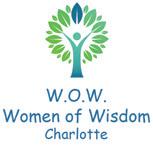



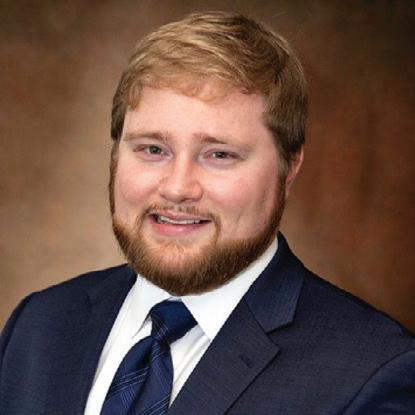
We have big Hadassah news!
On Jan. 1, the Charlotte and Lake Norman Hadassah chapters merged to form the new Charlotte Metro Chapter. We are excited to learn, laugh, and work together while raising funds for the Hadassah Medical Organization in Israel and other Hadassah causes. We extend a warm welcome to our Lake Norman Hadassah sisters!
Jewish Film Festival
Love movies but tired of Netflix? Join us at the Charlotte Jewish Film Festival on Sunday, Feb. 6 as Hadassah sponsors “Upheaval: The Journey of Menachem Begin.” The film will be shown virtually at 7 p.m. For ticket and virtual screening information, see www.culturalartsLJCC.eventive.org.
Directed by Jonathan Gruber, this documentary tells the incredible life story of former Israeli Prime Minister Menachem Begin. A proud, yet scarred, leader haunted by the Holocaust and decades of war, Begin struggled to balance history and heroism to make peace with his greatest
enemy and cement a legacy long misunderstood. With evocative imagery, rarely seen archival materials, and revealing interviews, we get a closer look at this brilliant, tough, complex, loving, and proud man who never compromised when the survival of Israel and the Jewish people were at stake.
Want to know more about Hadassah, enjoy some wine, and meet fabulous women? Join us for a membership event at Vintner Wine Market on Thursday, Feb. 3 at 7 p.m. Check hadassahcltevents.org for details and COVID update or contact membership co-VPs Lori at lptrap@ aol.com or Merril at red2467@ earthlink.net.
Purim Bingo
On Sunday, March 6, join us for virtual Purim Bingo on Zoom. This was so much fun last year that we’re bringing it back by popular request! For additional information and to sign up for the event, please go to hadassahcltevents.org.
Thank you for supporting Hadassah’s 2022/5782 Charlotte Metro Area Jewish Community Directory. While the deadline for including new information in the print directory has passed, there is no deadline for the online app, as it is updated in real time. It is free to put your personal information in the directory. If you would like to add a personal or business listing, or place an ad, sign up at hadassahcltevents.org. If your personal information has changed since your original submission and you have access to the app, please log in and update your information. If you do not have access to the app, use the update form on our website. You can subscribe to the app at any time for only $18.
link, email Karen at kfuttersak@ gmail.com or Aileen at mom3aileen@msn.com
Lake Norman also has a book club that we are adding to our Hadassah calendar. The meetings are on the second Friday of the month at 1:30 via Zoom. The next meeting is Friday, Feb. 11 to discuss “People Love Dead Jews” by Dara Horn. RSVP at www.jewishcounciloflakenorman.org/book-club or email Beverly at h204choc@gmail. com.
The Short Stories Discussion Group reads stories from different authors, cultures, and periods. The next meeting is Friday, Feb. 18 via Zoom. Meetings are held on the third Friday of the month at 11:45 a.m. Future meetings are March 18, May 20, and June 17. If you plan to attend, email Amalia at amaliaima@ ATT.net and she will send you the stories at least two weeks before the meeting. For additional information, email Amalia, or Linda Levy at levyollie@aol. com
Hadassah Sunshine Committee
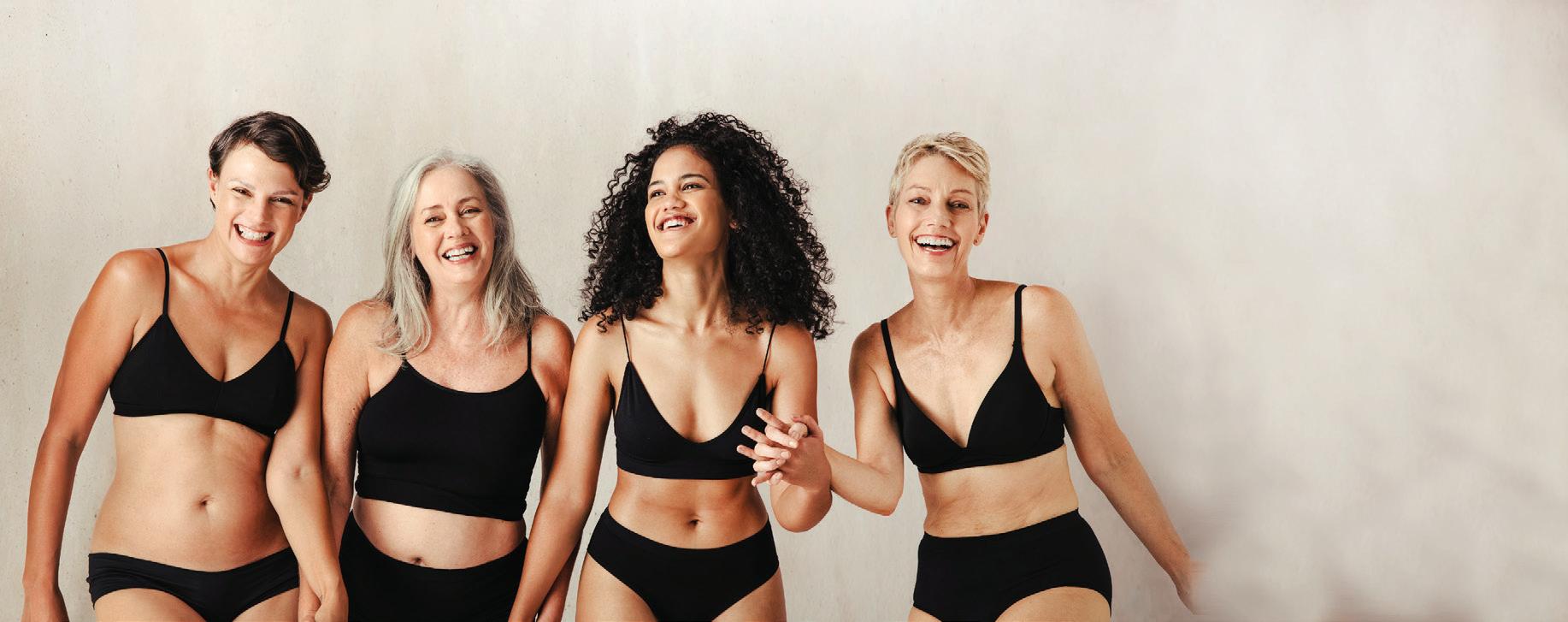
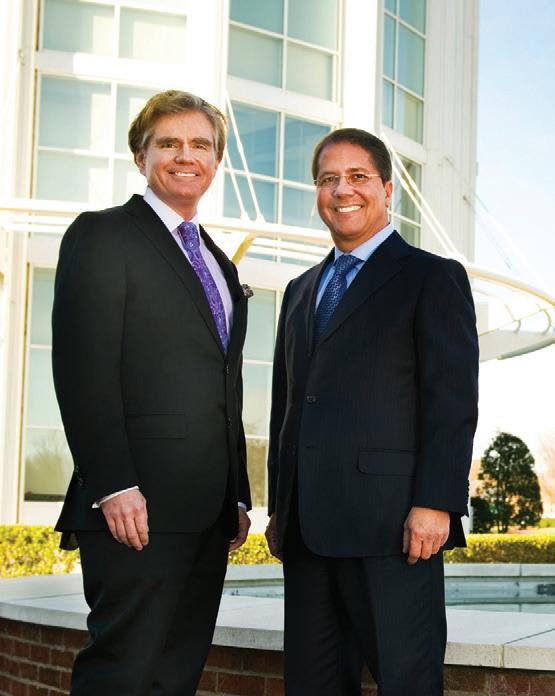
Now we have three opportunities for you to discuss books or short stories with other Hadassah readers:
Hadassah’s BookTalk meets on the fourth Tuesday of each month at 7 p.m. Join us and share your opinions about the month’s book. The next BookTalk is Tuesday, Feb. 22. We will discuss “Home in a Hundred Places” by Sarah Dayan Mueller. The book for our March 22 meeting is “The Song of the Jade Lily” by Kirsten Manning. For more information and the Zoom
Every month, Elissa Vining and her “Hadassah Preppies” prepare about 120 meals for Jewish Family Services. In December, they even included handwritten holiday cards with each meal. If you don’t cook, you can always donate supplies or grocery store gift certificates. Email svining@ aol.com for more information.
The next Hadassah Charlotte Metro Board meeting is Monday, February 21 at 7 p.m. via Zoom. All members are invited. Contact Nina at nachenbaum@ gmail.com for the link.
For up-to-date Hadassah information, check our website (HadassahCLTevents.org), like our Facebook page (Hadassah CLT), follow us on Instagram (Hadassah Charlotte) or Twitter (@HadassahCLT), or send us an email at HadassahCLT@gmail. com
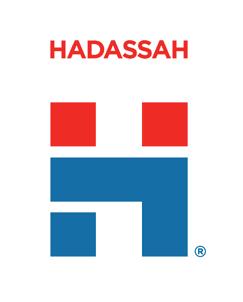
As adults, we often struggle to control our thoughts, actions, and emotions. Imagine how our children are feeling. Navigating school routines and responsibilities, friendships, and the added stresses of COVID all create challenges for our students. At Charlotte Jewish Day School (CJDS), we believe that education extends beyond academic basics. We understand it is our job to give our students social and emotional skills that carry beyond the classroom and allow them to be successful in all areas of their life.
This year, CJDS has a dedicated teacher and space for social and emotional learning (SEL). Ms. Jadyn, our former K and
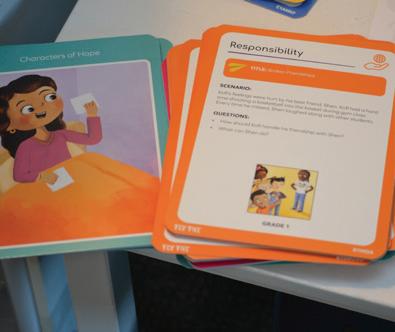
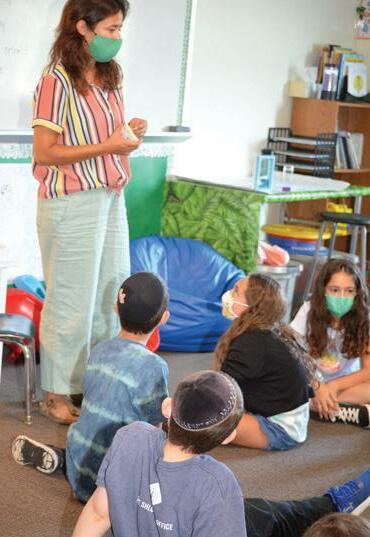
first-grade teacher, will provide a safe, nurturing school environment where students can learn about themselves and others. It will be a place where students can gain skills in working toward their unique goals, understand and manage their emotions, and learn how to nurture positive relationships by making informed choices and feeling and exhibiting empathy.
Ms. Jadyn will use a K-8 SEL curriculum called Fly Five developed on the belief that for

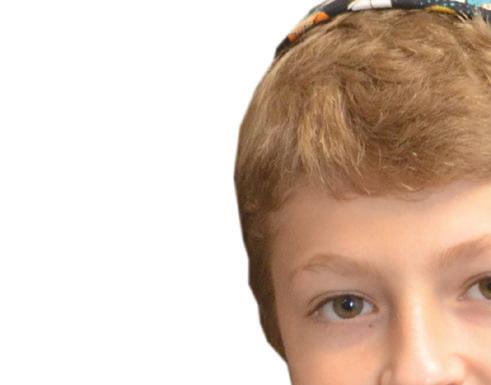


students to be academically, socially, and behaviorally successful in, out of, and beyond school, they need to learn a set of social and emotional skills.
Fly Five focuses on five core traits: cooperation, assertiveness, responsibility, empathy, and self-control (C.A.R.E.S). The curriculum also includes a mindfulness component.
Ms. Jadyn will work with each class once a week. The students will participate in group discussions, partner work, and self-reflection. She will meet with students in smaller groups to help resolve conflicts and one-on-one with individual students to address specific challenges or issues.
The SEL classroom is an oasis of calm, complete with soft lights and quiet music. When the lights are off, the students can even gaze at stars. The walls are covered with pictures, words, and phrases to focus the students on recognizing differ-
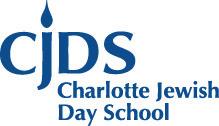
ent emotions and their responses. Social and emotional learning is one of the many gifts of a CJDS education. To see the classroom,

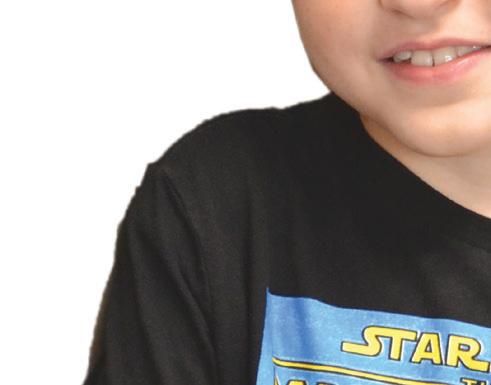





















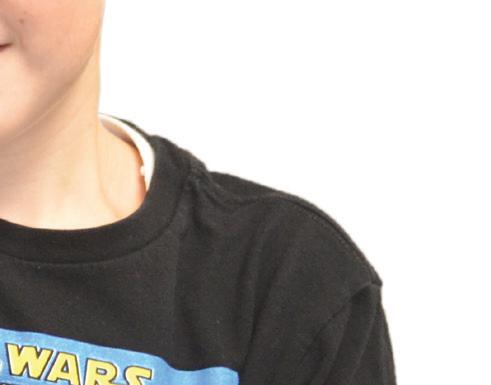








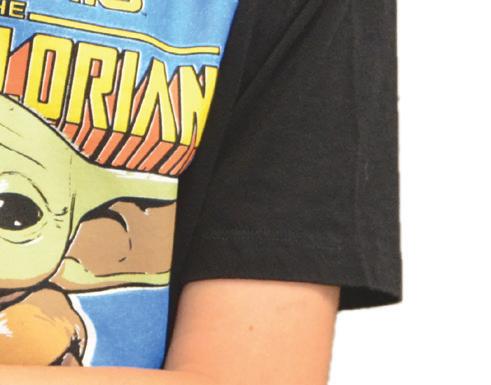



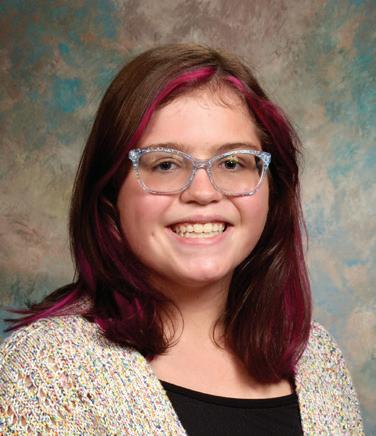 By Lillie Auslander
By Lillie Auslander
Many people in our society do not want to learn about people who are different from them. One of those groups are Jews. Being Jewish is cool, but there are many things people don’t think about; they often assume, which leads to stereotypes and falsehoods. Here are some of the stereotypes I have heard expressed:
Appearances: Jews have big noses, dark curly hair, and dark eyes and are short and pale. Stereotypically, we can’t have blond hair, blue eyes, or dark skin. A lot of stereotypes
are based on appearance, and these are all false. A great majority of these stereotypes come from what Hitler used to describe as a perfect person. I am participating in Hebrew High’s Rosh Chodesh program, and we recently discussed that no definition of a perfect person exists. We are all different in our own ways. Those are some typical European traits, but not everyone has them. There are so many Jews who have different colored eyes, not just brown. We all have different hairstyles and color or texture of hair other than dark brown or curly and have different nose shapes, and that’s okay. We are all different.
Another common stereotype people think or ask about is if we can speak perfect Hebrew or ask, “Do you speak Jewish?” For one, being Jewish is a way to describe being a part of a religion; it is not a language. I wish I could speak perfect Hebrew, but just as with any other language, speaking Hebrew takes a lot of practice. It’s not something that just happens.
Yes, it is the language that a lot of traditional things are written in, but that doesn’t mean we are going to be able to speak it right away. When I say “no” to this question, people often seem very confused, so I try to compare it to the language that they speak or what they are trying to learn. Then people start to understand we don’t speak perfect Hebrew.
Another stereotype is that we are all from Israel or have a parent from Israel. Not all Jews are born in Israel. There are Jews all over the world, which leads to another common assumption that there is only one way to be Jewish. In fact, there are many. Over the past few months, I learned about many of them in my Hebrew High class “The Many Faces of Israel.” There are many ways to practice Judaism. Most
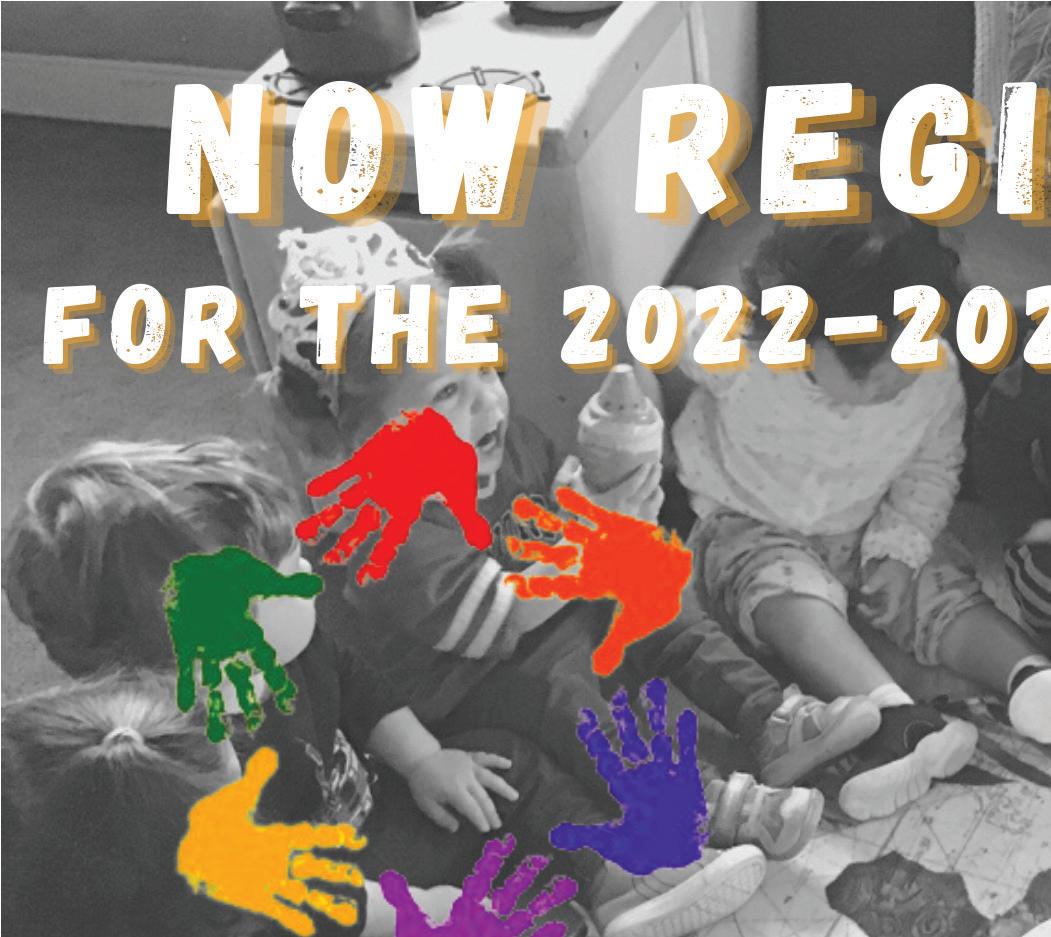
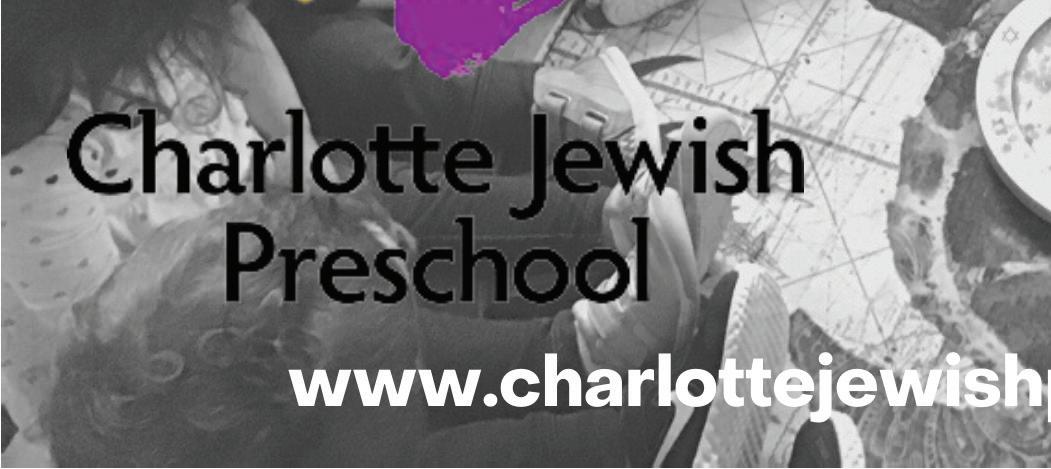
people only think of Orthodox and Reform Judaism or just Judaism in general, but there are so many more types of Jews, such as the Ashkenazi Jews, Yemeni Jews, even Crypto Jews. There are so many forms of Judaism all around the world.
A stereotype that I’ve experience is that Jewish teens are told that they should not be friends with non-Jews. In my opinion, that is wrong. People should be friends with others we are different from. That is how we grow and learn. If we don’t, there would be no change in the world. We would all just stay in our own groups. No one would see each other or be exposed to differences. We learn from others, and more specifically others that are different.
Finally, a common stereotype is that all Jews are very smart. We are expected to go into jobs that are meant for “smart people.” We get asked, “Are you going to be a doctor or lawyer?” Jobs like those are great but are not for everyone and we should not be be pres-
sured into doing things we do not enjoy.
To sum things up, there are a lot of stereotypes that are not true. Especially now when we are growing up with technology, teens have access to more and more false information. On social media, on television, in magazines and books, people are exposed to so many things that are false perceptions of reality. We need to do a better job at educating our peers and spreading Jewish pride.
My name is Lillie Auslander, and I am an eighth grader at Cuthbertson Middle School. A few interesting things about me are that I am in the Cuthbertson band and I play percussion, I am a catcher for softball, and my favorite color is purple.

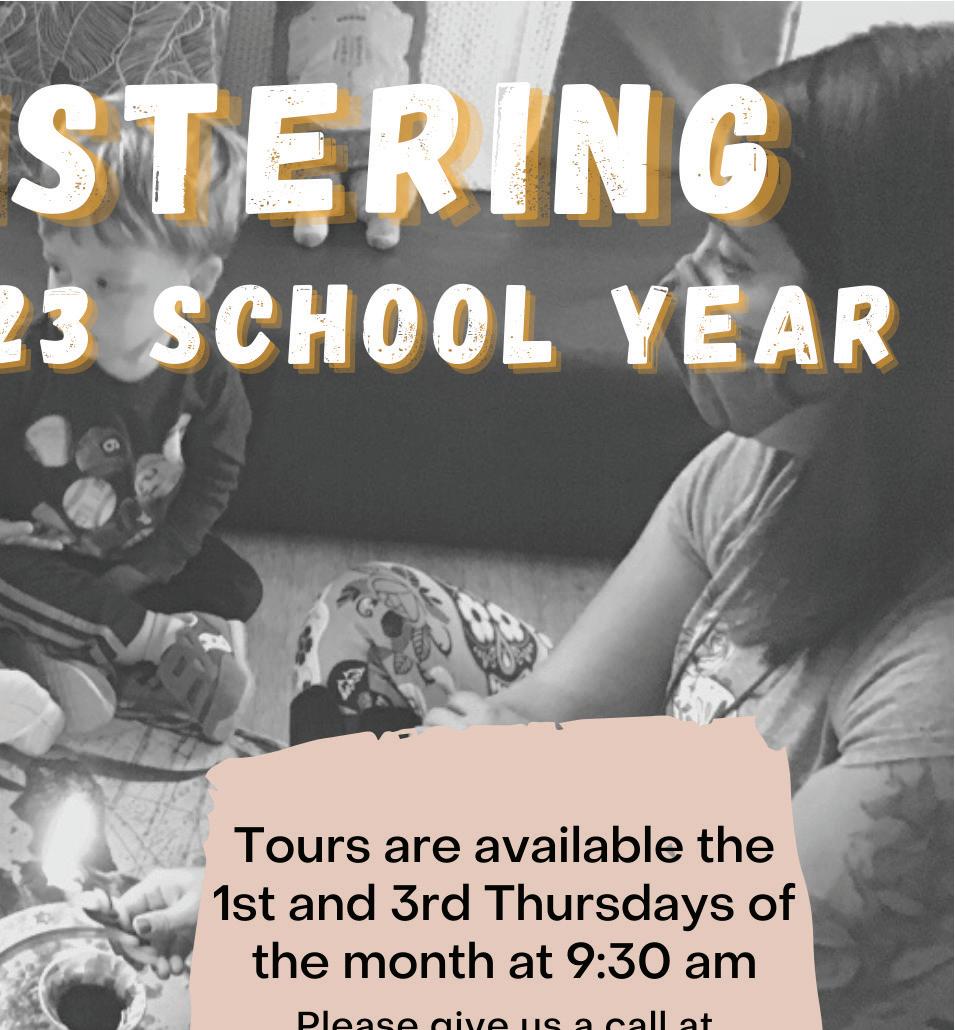

Thanks to Friendship Circle’s many partners and supporters, construction on the 6,000-square-foot Friendship Circle Inclusive Fun Zone has entered the final phase. Our new center, the first of its kind in the area, is designed with our special friends in mind, ready to offer recreational, therapeutic, and fun social and educational opportunities for children, teens, and young adults with special

needs to enjoy alongside their typically developing friends.
Boasting an Art & Creativity Zone, Music & Movement Studio, Multi-Sensory Dream Room, Teen Leadership Hub, Friendship Loft, and an Indoor Sensory Park, there’s a place for everyone to have fun.
Construction is slated for completion in mid-2022. To learn more, visit FriendshipCircleNC.org/NewCenter.

To schedule a tour, email bentzion@friendshipcirclenc. org Friendship Circle is a beneficiary agency of the Jewish Federation of Greater Charlotte.
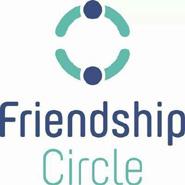

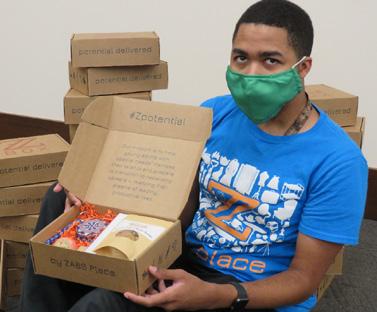
to reuse unwanted items and turn them into new things that are of better quality or more useful. Our ZABSprenuer Incubator guides individuals with special talents in developing and launching their own micro-businesses. We help people go from passion to product and support them in growing in a competitive market.
ZABS Place is more than a thrift store; it’s an example of how to live life recognizing potential in everyone and everything. You’re probably familiar with the job training that happens at our store in Downtown Matthews, but that’s just one way we accomplish our mission. ZABS Place also has an Upcycling University and ZABSpreneur Incubator program.
Upcycling University hosts weekly inclusive classes to teach the skills and techniques of how
After much feedback from those wanting to support our special talent, ZABS Place launched its first Z-Box in October full of upcycled and unique creations by our specially talented young adults.
To learn more, visit ZABSPlace.org/ZBox.
ZABS Place is a beneficiary agency of the Jewish Federation of Greater Charlotte.
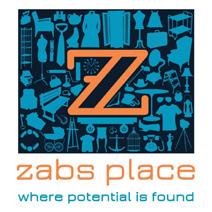
TEL AVIV — A few weeks ago, Joel Tenenbaum, 81, and Marilyn Berkowitz, 84, arrived in Tel Aviv on an El Al flight from New York ready to start their new lives in Israel.
They had met through JDate five years earlier. Each was widowed; Tenebaum had been married for 47 years, Berkowitz, known as Lyn, for 49.
A retired New York trial lawyer raised in Brooklyn, Tenenbaum always had felt an affinity for Israel — fueled since childhood by Hebrew school and the movie “Exodus.” Berkowitz, a former university dean’s assistant in New Jersey, had been a frequent visitor to Israel ever since her son moved here in 1991.
Both are longtime volunteers for the Israeli nonprofit organization Sar-El. They now share a rental apartment in Tel Aviv’s trendy Florentin neighborhood, close to the ulpan where they will soon enroll in an intensive Hebrew language program.
“A lot of our contemporaries have gone to Florida,” Berkowitz said. “But I think they should become sandbirds, not snowbirds.”
In fact, more and more older American Jews are opting to spend their golden years in the Jewish state.
Of the 4,478 new immigrants who arrived in Israel from North America last year, 762 — just over 17% of the total — were 55 or older. That’s up nearly 23% from the 580 who came in 2020, according to Nefesh B’Nefesh, the nonprofit agency that coordinates the aliyah process for U.S. and Canadian citizens.
“Israel is becoming a more attractive place, specifically for people at the age of retirement,” said Marc Rosenberg, vice president of Diaspora partnerships at Nefesh B’Nefesh. “With increasing technology, cellphones and internet use, Israel is much more international now, especially with apps that allow people to get around, navigate and do their banking online.”
The pandemic, Rosenberg said, has prompted people of all ages to recalibrate what’s important to them.
“The pandemic really shifted how many people connect and stay close to family without being in close physical proximity,” said Rosenberg, whose organization works in partnership with Israel’s Ministry of Aliyah and Integration, the Jewish Agency for Israel, Keren Kayemeth LeIsrael and the Jewish National Fund-USA. “And they know the healthcare system in Israel is excellent. Is-
rael handled the pandemic pretty well, and that’s been a significant factor.”
The pandemic was a big factor in the aliyah decision of New York natives Howard and Mina Millendorf, who moved to Israel last July. The couple in their 70s settled in Jerusalem’s Katamon district, moving into the same building where their daughter, Sharon, lives with her husband, Shlomo, and their three sons.
“I think the pandemic kind of pushed us into making a decision,” said Mina, a retired elementary schoolteacher who had lived in the Bronx neighborhood of Riverdale since she and Howard were married 41 years ago. “Normally, we’d come to Israel several times a year and rent an apartment here. But with COVID, we were missing all the birthdays and anniversaries. It was not easy for us.”
Six months after their arrival, Howard lists his main goals as “finding ways to do good, playing daily with our grandsons, cultivating new friends, restaurants and wines, and enjoying Mina’s special cooking and baking with family.”
But he also aims to give back to Israel through his work with the telecom company IDT and the Howard Jonas Foundation. Proj-


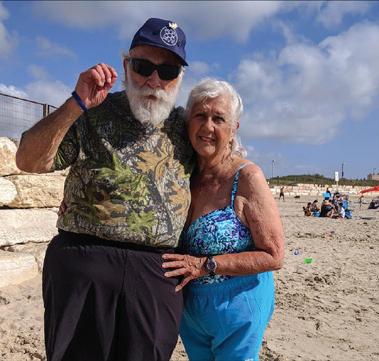
borhood of Pico-Robertson, but they decided recently it was time to make the move to Israel.
“The situation in America really made us feel we wanted to come to Israel and be with the Jewish people,” Joanie said.
Between the two of them, they have five children and 15 grandchildren.
The couple already has bought an apartment in Modiin, which is a 25-minute drive from the beach at Rishon Le’Zion, where Yossie likes to surf.
ects include the construction of a new cancer center at Jerusalem’s Shaare Zedek Medical Center as well as initiatives for severely disabled youngsters, autistic and hearing-impaired children, and people with terminal illnesses. In addition, Howard is involved in a long-term networking program, choosing his 27,000 LinkedIn connections to open doors and help secure job opportunities in Israel and elsewhere.
Yossie and Joanie Ziff of Los Angeles arrived in Israel as new immigrants on Dec. 27, 2021. Both retired elementary school teachers, Yossie, 71, and Joanie, 67, had lived in Venice Beach in California for years, and then the heavily Jewish L.A. neigh-
“We’ll probably go back and forth to America, but this will be our primary home,” Joanie said. “Modiin has such a beautiful Anglo community here. When we got here, there was a sign on our door from our neighbors welcoming us. We’ve been smothered by love wherever we go.”
This article was sponsored by and produced in partnership with Nefesh B’Nefesh, which in cooperation with Israel’s Ministry of Aliyah, The Jewish Agency, KKL and JNF-USA is minimizing the professional, logistical and social obstacles of aliyah, and has brought over 65,000 olim from North America and the United Kingdom for nearly two decades. This article was produced by JTA’s native content team.
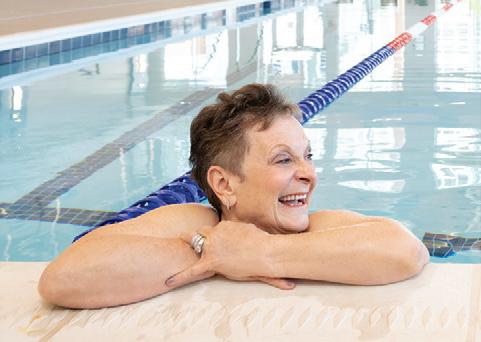
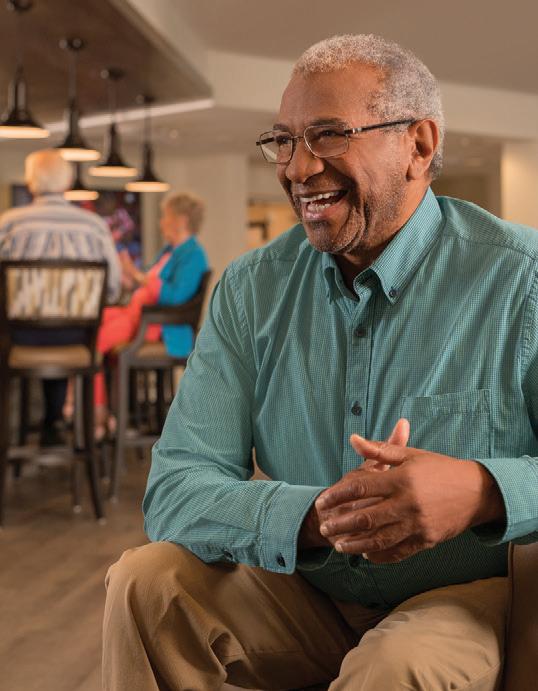
January 11, 2022 (New York
Jewish Week via JTA) — In a boon for scholars and amateur researchers, records from Yad Vashem, Israel’s Holocaust authority, are now publicly available through JewishGen, the largest online Jewish genealogy resource of its kind.
The agreement announced Tuesday by Yad Vashem and New York’s Museum of Jewish Heritage/A Living Memorial to the Holocaust, an affiliate of JewishGen, provides easy access to millions of names commemorated in Yad Vashem’s database.
“Pages of Testimony,” documents collected by Yad Vashem since the 1950s, include the names, biographical details and, when possible, photographs of some 2,700,000 men, women and children killed in the Holocaust. Yad Vashem’s Names Database commemorates over 4,800,000 Jewish victims in total. Researchers will now be able to retrieve these records through a direct search within JewishGen.
“Yad Vashem’s Pages of Testimony might contain the only information about someone who was murdered in the Shoah, yet researchers might not know to look on their website,” JewishGen Executive Director Avraham Groll told the New York Jewish Week. Under the new agreement, the Yad Vashem search results will automatically appear within JewishGen.
In 2020, JewishGen announced a similar partnership with the USC Shoah Foundation, integrating data from nearly 50,000 Jewish Holocaust survivor testimonies.
“By making available these precious records via JewishGen, the broader Jewish community can more easily research names of family and friends who were murdered during the Holocaust,” said Museum of Jewish Heritage President and CEO Jack Kliger.
While the material may help individuals identify missing relatives or restore a truncated family tree, Yad Vashem is also hoping researchers will help fill in the gaps in its own records.
“More than one million Holocaust victims have yet to be memorialized at Yad Vashem,” said Alexander Avram, director of Yad Vashem’s Hall of Names, in a statement. “By widening

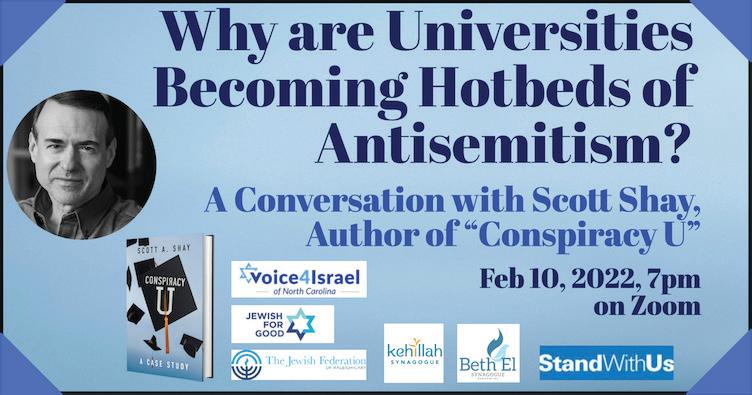


the exposure of our endeavor through JewishGen, the genealogical community will be able to play an important role in helping us add a large number of Pages of Testimony in the years to come.”
The records can be accessed via the JewishGen Holocaust database.

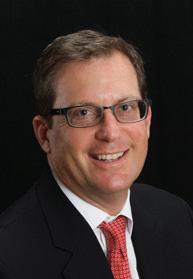



Jonah Goldman Kay, January 13, 2022 (JTA)
Over the past several decades, the Terezín concentration camp has come to be synonymous with the music of the Holocaust because of the number of performers who were imprisoned there.
Now, in the latest production associated with a foundation devoted to preserving the camp’s legacy, a new book reveals how one prominent musician thought about music at the camp at the time, offering fresh insights about the complicated nature of life in Terezín.
Austrian composer Viktor Ullmann came from a Jewish family and studied under the storied Jewish composer Arnold Schoenberg, who fled the Nazis in 1933. The Nazis deported him to Terezín, known as Theresienstadt under their rule, in 1942.
While incarcerated there, Ullmann wrote a series of essays on musical life, painting a portrait of a vibrant artistic scene in the depths of an oppressive ghetto and offering his views on the works composed at the camp.
In 1944, after producing a camp opera satirizing Hitler, Ullman was murdered at Auschwitz, where tens of thousands of his fellow Terezín prisoners died.
Ullman’s perspective is preserved in “Our Will to Live,” a new compilation of his critiques edited by Mark Ludwig, a former violinist with the Boston Symphony Orchestra and professor of Holocaust Music at
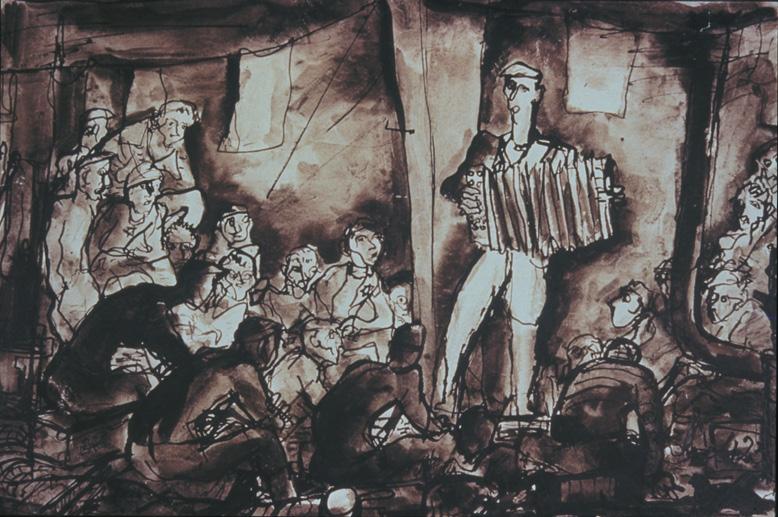
Boston College. It was released by the high-end German art book publisher Steidl on Tuesday.
“Ullmann is like our Virgil, taking us back into Terezín by virtue of his critiques,” Ludwig told the Jewish Telegraphic Agency.
Life in Terezín was as brutal as any other concentration camp. Food was scarce, overcrowding was rampant, and disease spread rapidly. Out of the 141,000 prisoners in Terezín, 90,000 were sent to Treblinka and Auschwitz where they were murdered.
But Terezín was also a major part of the Nazis’ propaganda machine and they went to great lengths to make the camp appear luxurious. “Theresien-spa,” as the camp was informally called, appeared frequently in propa-

ganda films and was the location of choice when international delegations came to inspect the camps.
To aid that propaganda effort, the Nazis ensured that the Reich’s wealthiest and most famous Jews ended up in Terezín. At different points, its prisoners included Leo Baeck, the Berlin rabbi who would go on to lead the Reform movement; Dutch-Jewish artist Joseph Spier; and Alfred Flatow, the Jewish gymnast who represented Germany in the first Olympic Games.
Among the camp’s prisoners were dozens of musicians and composers from across Europe. Using instruments smuggled into the camp, they formed choirs, cabarets, and other musical groups, who then performed for their fellow prisoners — and, at opportune moments for their Nazi captors, for guests like the Red Cross.
To Ullmann, the austere conditions in Terezín were not barriers to production but an opportunity to focus on producing art. By imprisoning some of Europe’s finest artists and musicians together in the same camp, the Nazis had unknowingly created a conservatory of sorts, a “true school for masters” as Ullmann called it.
“I would only like to emphasize that my musical work was fostered and not inhibited by Theresienstadt,” he wrote.
“Our Will to Live” is the culmination of more than three decades of work by Ludwig’s Terezín Music Foundation, an organization dedicated to preserving the legacy of Terezín’s musicians. Since the 1990s, the Terezín Music Foundation has
(Continued from page 30)
Newspaper archives are a treasure trove of collective memories, providing a snapshot of our history. The following is from February, 2012 To read the whole issue or other issues of CJN, visit the archives at https://www.digitalnc.org/newspapers/charlotte-jewish-newscharlotte-nc/.
It’s a “rare opportunity” to go to Israel, said Fire Chief Jon Hannan.For nine days in early November, Hannan, Deputy Chief Rob Kinniburgh and Capt.
Jerry Rodgers represented the Charlotte Fire Department on a professional delegation to Israel.Corey Riddley, direetor of safety and security for the Foundation of Shalom Park,accompanied the three firefighters. They were joined by six firefighters from Florida and three firefighters from Tennessee.
“This professional delegation occurred through a joint initiative between the Jewish Federations of North America and the Jewish Ageney for Israel called Partnership 2Gether or P2G,” said Raehael Levine, Director of Community
Relations and Israel Affairs, Jewish Federation of Greater Charlotte.
“P2G pairs global Jewish communities with Israeli communities building living bridges through people-to-people conneetions, sharing of ideas and personal and professional eollaborations,” said Levine, 26.
This cross-cultural exehange has happened with other diseiplines, such as edueators and police offieers.
This time, P2G sent a delegation from the Charlotte Fire Department.
This was Hannan, Kinniburgh, and Rodgers’ first trip to Israel.
Hannan, 55, was looking forward to meeting the Israeli firefighters, especially the ones from Hadera who had visited Charlotte last March for technieal rescue training. Hannan also wanted to visit historic holy sites like Jerusalem and Masada.
Rodgers, 46, said that his wife was worried about him going, but then she realized it was no more dangerous than his rescue work.
Going to Israel “was incredible, one of the things on the bucket list,” said Rodgers.
The delegation spent the first few days in Israel bonding with the firefighters in Hadera, visiting their station
and seeing how they operated.
“The (Israeli) fire service is small with a huge volunteer base,” said Kinniburgh, 50. “They have 1,700 employees and 12,000 volunteers.” Hannan and Kinniburgh explained that in Charlotte the minimum staffing for 730,000 people is 255 firefighters on duty. In Jerusalem, the minimum staffing for 780,000 people is 40. “Those guys work hard. You ean tell,” said Kinniburgh.
Hannan explained that in some rural areas, there were fewer resourees to fight fire.
The Charlotteans noticed signs on fire trucks that read that they were sponsored by Jewish Federations or individuals from the United States.
“They benefit from generosity of the global Jewish community,” said Levine.
The delegation visited Mount Carmel, the site of a huge fire in 2010 that had a large loss of life. “I believe the Carmel Forest fire woke Israel up to recommitting to firefighting,” said Hannan.
Next, the men traveled on the Sea of Galilee and to Jerusalem where they met with the Jerusalem fire department, the police department, the bomb squad and the video surveillance unit.
Hannan noted differences between building construction in Israel and in the U.S. “It’s stone or masonry...almost no wood,” said Hannan. “Their construction has to withstand blasts.”
In the evening, eight of the 13 men went on a self-led tour through Jerusalem. As firefighters, they are used to going into all different kinds of neighborhoods.
“We are aware but not really scared of anything,” said Kinniburgh.
“Israel is a complicated place,” said Hannan.
They were briefed to expect cultural differences. Rodgers said they were “received and welcomed so pleasantly” everywhere they went, Jewish and Arab areas alike.
I felt safer there than in a lot of American cities,” said Hannan.
The delegation also went to the Holocaust museum, the Dead Sea, Masada, and
Tel Aviv to visit the National Firefighting and Rescuing School.
Visiting Israel helps people understand the dynamics.
“Everyone around you hates you,” said Kinniburgh. “The Sea of Galilee feeds four countries. You have to make agreements with enemies to get fresh water.”
Hannan would love to train Israeli and Palestinian firefighters together. “They absolutely should support each other as things get better,” he said.
Hannan hopes to continue long-term relationships with exchanges and technical rescue trainings.
“Southern hospitality is what we do well,” said Kinniburgh.
From the P2G’s perspective, the trip was a success.
These exchanges “humanize one’s relationship with Israel,” said Sue Worrel, Executive Director of Jewish Federation of Greater Charlotte. “They are real people, and we have more in common with them than different.”
Marissa Brooks is a freelance writer for South Charlotte News who lives in the Arboretum area. Reprinted with permission of South Charlotte News, a Charlotte Observer publication, January 2012.
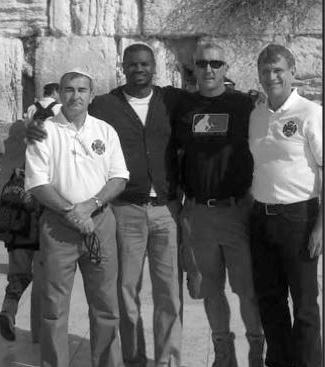
researched the works of these musicians and commissioned new performances of works by Ullmann and other Jewish prisoners at Terezín, including Pavel Haas and Hans Krása.
In 2013, the Terezín Music Foundation organized a concert at Boston’s Symphony Hall featuring George Horner, a Holocaust survivor who played piano in the Terezín caberets, and famed cellist Yo-Yo Ma. A few years later, the foundation organized a performance of works by Terezín artists during the Prague Spring Festival.
https://www.youtube.com/ watch?v=gc-aMAdGxqU
“For a number of these pieces we’re putting down the first recorded interpretation of the work,” Ludwig said. “That’s exciting, but it comes with its own sort of responsibilities.”
One of those responsibilities, Ludwig said, is ensuring that the audience understands the conditions of the work’s production.
For “Our Will to Live,” Ludwig worked with German artists who were alive in the middle of the 20th century to understand the people and events Ullmann references in his critiques. These insights are documented in extensive footnotes at the end of each critique.
Ludwig is not alone in his interest in the artists of Terezín. A host of other classical musicians including Japanese pianist Izumi Shimura and Italian pianist Francesco Lotoro have found themselves drawn to the music of the camp. In 2013, conductor John Axelrod revived one of Ullmann’s operas with the Kammersymphonie Berlin.
Where the Terezín Music Foundation stands apart is in its interdisciplinary approach, which is an attempt to evoke the atmosphere in the camps.
“At Terezín, the art and music were really intertwined,” says Jim Schantz, a painter who has worked with the foundation on several performances.
Commissioning visual artists to work with musicians on these performances brings out the original spirit of these works, Schantz added. One performance of a string quartet by composer Hans Krása featured Schantz in the background, painting in response to the music.
Similarly, for “Our Will to Live,” Ludwig paired Ullmann’s critiques with posters from the Heřman Collection, a collection of more than 500 items documenting cultural life in Terezín. A prisoner named Karel Heřman hid the documents in the walls of the camp’s barracks, recovering them after he was liberated from Auschwitz in 1945. The items in the collection range from sketches of Ullmann and his friends to posters for concerts in the camp and sheet music for the original compositions.
In recent years, the foundation has also commissioned more than 40 new works that build on the work of Terezín artists or are inspired by the same principles that guided these artists. It has also helped provide resources for musicians in wartorn communities in Syria and Bosnia.
By working on contemporary projects that preserve the spirit of perseverance and dedication to creating music under the most difficult conditions that animated musicians like Viktor Ullmann, Ludwig said he hopes to keep the memories of the Terezín artists alive.
“Perhaps that’s the ultimate homage to them,” he said. “Helping to uplift new voices of today and tomorrow.”
Right before COVID hit in the spring of 2020, Yisroel Leshes was looking to branch out of the world of cantorial music. For most of his professional singing career, he has been working as the assistant cantor at Lincoln Square Synagogue, a Modern Orthodox synagogue on the Upper West Side.
The 35-year-old is a lover of jazz music and jazz bars, so he asked his jazz musician friends — who happen to not be Jewish what material he should start with.
Their answer surprised him. “Why not take a look at Yiddish theater?” they suggested.
“I always kind of wrote it off. It was something my grandmother listened to — not me,” Leshes, who lives in Brooklyn, told The New York Jewish Week. “But once I started to dig into it, I found that I had misjudged it.”
According to the Milken Archive of Jewish Music, the heyday of Yiddish theater lasted from about 1882 to the middle of the 20th century, back when New York’s Second Avenue was dotted with so many theaters it was known as “Yiddish Broadway.” This unique, Yiddish-language mix of vaudeville and musicals was both a nostalgic preservation of the Old World, as well a reflection on the hopes, anxieties and experiences of new Americans. As the 20th century progressed, Yiddish theater began to die out as Jews assimilated into broader

American culture, though it has been seeing a small but popular resurgence in recent years.
“We have over 50,000 albums of material [from Yiddish theater] that almost nobody performs,” Leshes said. And if they are performing it, he added, it is in a nostalgic, traditional way.
So in order to bring Yiddish musical theater into the world of jazz, Leshes had to reinvent the genre. For the past few years, he has been rewriting the old songs from Yiddish theater as modern jazz tunes. “I’m just discovering it all now, and it’s incredible,” he said. “There’s so much amazing material.”
Leshes grew up around Yiddish and speaks it himself, but it is only recently that he has been
able to appreciate its modern applications in music and performance.
Last Friday, Leshes released his first music video for his song, “Younger World” (“Yinger Velt” in Yiddish), which he filmed last summer while on vacation in Venice over the course of only a single morning. The original song is actually a reworked, swinging version of the song “Di Zukunft (The Future),” which was written by Yiddish poet Morris Winchevsky in the early 1900s. Leshes worked with jazz arranger Adam Podd to recompose the melody. The result has some of the vibe of “Bei Mir Bistu Shein,” the Andrews Sisters’ 20th-century Yiddish crossover hit, which itself was covered by
Shira Hanau, January 20, 2022
TikTok announced a slate of new features intended to reduce the spread of misinformation about the Holocaust shared on the platform and to direct users to trustworthy sources about the subject.
Beginning Thursday, International Holocaust Remembrance Day, a banner will pop up when users search for Holocaust-related terms and direct them to aboutholocaust.org, a website run by the World Jewish Congress and UNESCO, to offer information about Holocaust history.
A link to the website will also pop up for users viewing hashtags related to the Holocaust like #Holocaust and #HolocaustSurvivor.

TikTok and other social media platforms have long been criticized for allowing Holocaust denial and antisemitism to spread unchecked on their platforms. Some Jewish content creators have also complained about being banned or censored from the platform for posting videos that educate about Judaism or antisemitism.
The social media platform, which is made up of short us-
er-produced videos, has pledged to crack down on hate speech shared on the platform in the past and has worked with the Anti-Defamation League to develop protocols for determining hate speech.
“Hateful behavior of any kind is incompatible with our values and the inclusive environment we are building at TikTok. We condemn antisemitism in all its forms and deploy a combination of technologies and moderation teams to remove antisemitic content and accounts from our platform, including Holocaust denial or any other form of hate speech directed at the Jewish community,” the company said in an announcement.
said, is the experience of being able to see and hear the music in an intimate venue with only a few dozen other people. But because he keeps kosher, Leshes was aware that he was harming jazz clubs’ bottom lines by not purchasing food when he took up a table.
So, Leshes did the next logical thing: In the early months of 2020, he opened The Mansion NYC, a pop-up jazz club in the YJP (Young Jewish Professionals) Mansion, a three-story venue on East 16th St. near Union Square.
such jazz greats as Ella Fitzgerald and Benny Goodman.
In the video, Leshes sings his way around the colorful canals — crooning while sitting in a gondola — and walking along the narrow streets. He’s joined by a trumpet player, while his daughter, Shira, dances and laughs with him as they sing about the old world changing into a new era.
“Venice is the most colorful city in the world,” said the Venetian director of the video, Dean Lakić, “It is a superb setting for a song about a brighter future.”
The reception to the song and video, Leshes said, has been great. “People stop me on the street in Brooklyn. I’m so glad to know it’s not just me, that a lot of people are really liking this kind of music.”
Leshes’ appreciation for jazz and Yiddish theater isn’t limited to his own performances. One of his favorite things about jazz, he

The venue was able to host three shows before the pandemic shutdown in 2020; there was kosher food, a bar and about 100 people in attendance at each performance, he said. He showcased Jewish and Israeli Klezmer music, featuring performers Yanke Lemmer, Frank London and Daniel Zamir.
“It was just absolutely magic,” he said. “People loved it. There’s just a very Jewish, heimish atmosphere. Nobody felt awkward or out of place.”
Leshes had planned to reopen this month, before the recent Omicron spike delayed its comeback. He’s waiting until cases are lower before he’ll look into booking acts again.
In the video for “Younger World,” Leshes belts the last lines of the song while sitting on a gondola as it glides along a canal: “Alzo mutik in di reynen, In di reynen, tsu befrayen, Tsu befrayen un banayen Unzer alte velt.”
The video’s subtitles translates this to: “Let’s all have the courage in the ranks to free and rejuvenate our Old World.” It seems he is already doing so.

From the halls of the United States Capitol to the streets of Europe, politicians and activists protesting against vaccine requirements have increasingly invoked the Holocaust.
Some are wearing yellow stars, while others are sharing Nazi-era medical documents and comparing themselves to Anne Frank. The comparisons often draw sharp rebukes from Jewish groups and Holocaust museums and educational organizations.
Dr. Albert Bourla is also troubled by this trend — and few people are more personally connected to the topic. Bourla is the son of two Holocaust survivors, and he is the CEO and chairman of American pharmaceutical giant Pfizer.
The Pfizer-BioNTech COVID-19 vaccine was the first to be authorized by the Food and Drug Administration, first for emergency use in December 2020 and then for full approval in August 2021. It’s also the vaccine that Israel has given to its citizens, some now for the fourth time.
Bourla’s family history — paired with his work — give him a unique perspective. It’s personal.
“They are stupid people, those that make these comparisons,” Bourla told the Jewish Telegraphic Agency. “It’s disgusting to say that a request to protect the health of others by wearing masks or protect the health of yours and others by getting vaccinated, can compare with if you are Jewish, gypsy or homosexual, you are sent in a concentration camp. This is ridiculous to even make those accusations.”
Bourla understands those who are afraid of the vaccines — fear is human, he said. He suggested that a more comprehensive educational campaign is needed to address the spread of vaccine misinformation. But to compare public health guidelines to the Holocaust, he said, is an insult to the victims.
Earlier this month, Bourla was named the winner of the 2022 Genesis Prize, the “Jewish Nobel” that “honors extraordinary individuals for their outstanding professional achievement, contribution to humanity, and commitment to Jewish values.”
“It’s an incredible honor to me,” Bourla said. “I was really surprised when I saw my name nominated, particularly when I saw the list of people who ei-
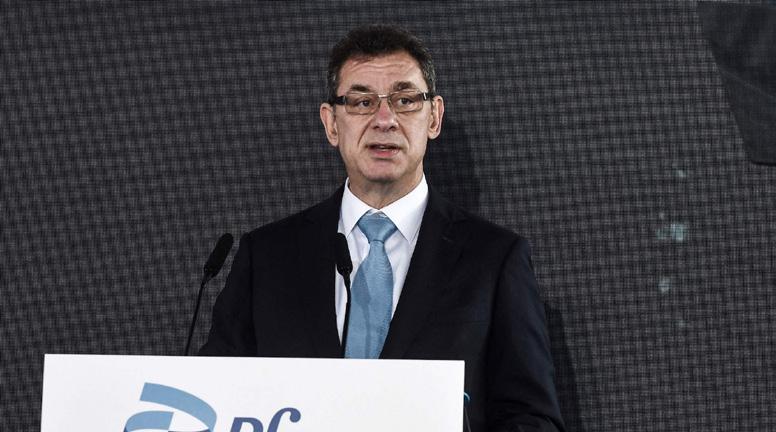
has saved an entire world.
“That’s a big essence of Jewish values, and it is embedded into what Pfizer is doing,” Bourla said.
Bourla is a native of Thessaloniki, Greece, formerly home to one of Europe’s most vibrant Jewish communities. His parents both survived the Nazi occupation of Thessaloniki, each with a remarkable story.
mother’s life — to keep her in prison, but not to execute her. Her sister would wait outside the prison each day to watch the prisoners being taken to execution. When she saw her sister being moved, her husband called the Nazi he had bribed and explained the mistake.
ther had received it or in this case were nominated together with me.”
The award includes a $1 million prize, which Bourla is dedicating to Holocaust memorial initiatives. Bourla is the ninth winner of the annual award given by the Genesis Prize Foundation; each winner has donated the money or had it distributed in their name. The prize money is awarded from an endowment created by a number of Russian-Jewish philanthropists.
Bourla received the most votes in a global digital campaign conducted by the foundation, during which 200,000 people in 71 countries voted, according to the award announcement. Bourla was then unanimously endorsed by the award’s selection committee. The award will be formally presented to him by Israeli President Isaac Herzog at a ceremony in Jerusalem in June.
“It’s a great, great honor, which I accept on behalf of everyone at Pfizer,” said Bourla.
In its announcement, the Foundation highlighted Bourla’s leadership, determination, and “his willingness to assume great risks.”
Reflecting on the past two years, Bourla said that taking risks was the only option in developing the vaccine.
“Everything, the world, the way we knew it, was collapsing,” he said. “The only way that we would be able to do something so challenging, so visionary, so unprecedented, was if you take a lot of risks.”
Chief among them, Bourla said, was selecting the mRNA technology that the Pfizer (and Moderna) vaccines utilize. A then unproven technology, Bourla said mRNA – using the information in genes to create a vaccine blueprint blueprint –
was not the obvious choice. But it worked.
“That was a clear indication of willingness to take risks,” Bourla added.
Bourla has worked for Pfizer since 1993, when he was first recruited from Greece to join the company’s animal health division. In the three decades since, Bourla has lived in nine cities in five different countries, working across departments at Pfizer and moving up the ranks, finally ascending to CEO on Jan. 1, 2019 — less than a year before a potent new coronavirus was documented in China.
As the leader of a global health company whose stated purpose is the “relentless pursuit of breakthroughs that change patients’ lives,” Bourla noted the overlap between his work and his Jewish values. He referenced the Talmudic teaching that one who saves a life
Bourla’s father and uncle happened to be out of the ghetto on the day the Nazi forces surrounded it. When they returned to the ghetto, they asked their father, Bourla’s grandfather, what was happening. “Just disappear, go,” he told them, Bourla recounted. That afternoon, the whole ghetto was marched to a train station — on their way to Auschwitz.
“Once the war was over they came back, they found nothing,” Bourla said about his father and brother. “They started building [their lives] from scratch.”
Bourla’s mother has an even more dramatic story.
First, much of her family was sent to Poland, where they would all be murdered by the Nazis. She stayed in Greece with her sister and brother-inlaw, spending most of the occupation in hiding. Toward the end of the war, she was found out and arrested — but at that point, Bourla said, captured Jews were no longer being transported to camps, but rather executed.
Her brother-in-law, who was Christian, bribed a Nazi commander to spare Bourla’s
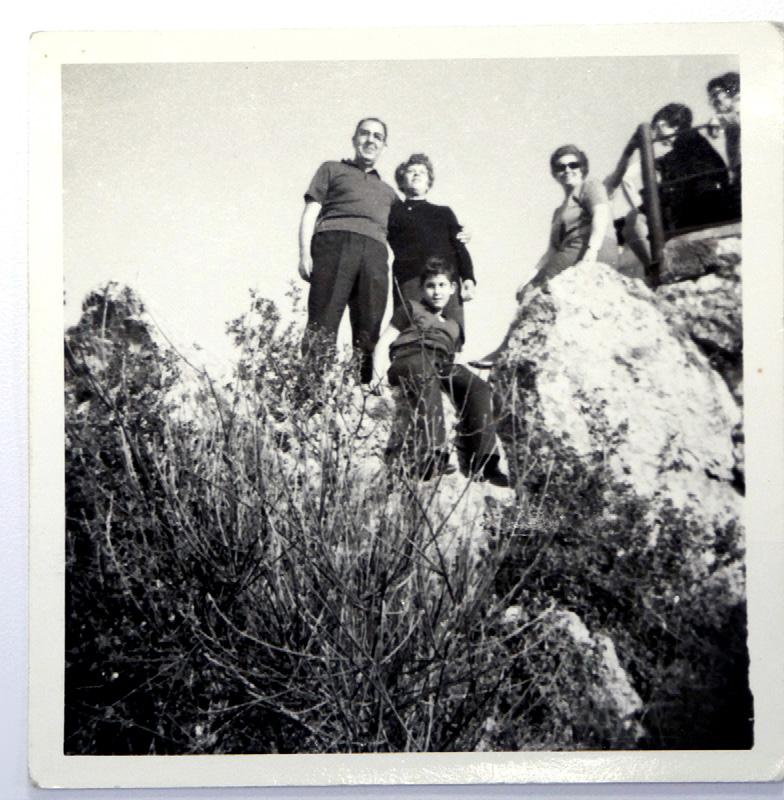
“My mother was lined up in front of a firing squad, and then a BMW arrived with German soldiers,” Bourla said. “They handed the head of the squad a paper, and then they removed my mother and someone else and the rest were executed.”
More than 50,000 Jews from Thessaloniki were murdered during the Holocaust. Bourla’s parents were among the few who survived.
With such a powerful communal and personal story, Bourla said he is committed to helping preserve the Jewish history of his hometown.
“In this city, there is nothing left to remind of the great history of Jews, because of the Holocaust,” he said.
That’s where the Genesis Prize comes in. Bourla is donating his $1 million prize toward Holocaust memory initiatives, primarily in Greece. He said it is “unacceptable” that there isn’t a Holocaust museum in Thessaloniki — and he is working to change that.
Throughout the pandemic, Bourla was faced with what seemed like insurmountable challenges. But he remembers his mother telling him time and again that nothing is impossible.
“Every time I had a challenge in my life and I would tell her, ‘I have this problem in school,’ I still remember her waving her finger in front of my face and telling me, ‘Don’t tell me this is impossible to do. I was in front of a firing squad and I survived. Nothing is impossible,’” Bourla recalled. “I still remember her saying, ‘There is no ‘I cannot,’ there is only ‘I don’t want.’’”
Bourla said his parents’ stories played a critical role in shaping his Jewish identity.
“That created a very strong sense of belonging to me,” he said. “I had a very strong Jewish identity, and a sense that I want to work with others to make sure that those things never happen again, to us or to others.”




